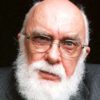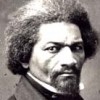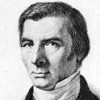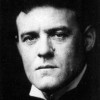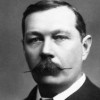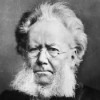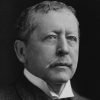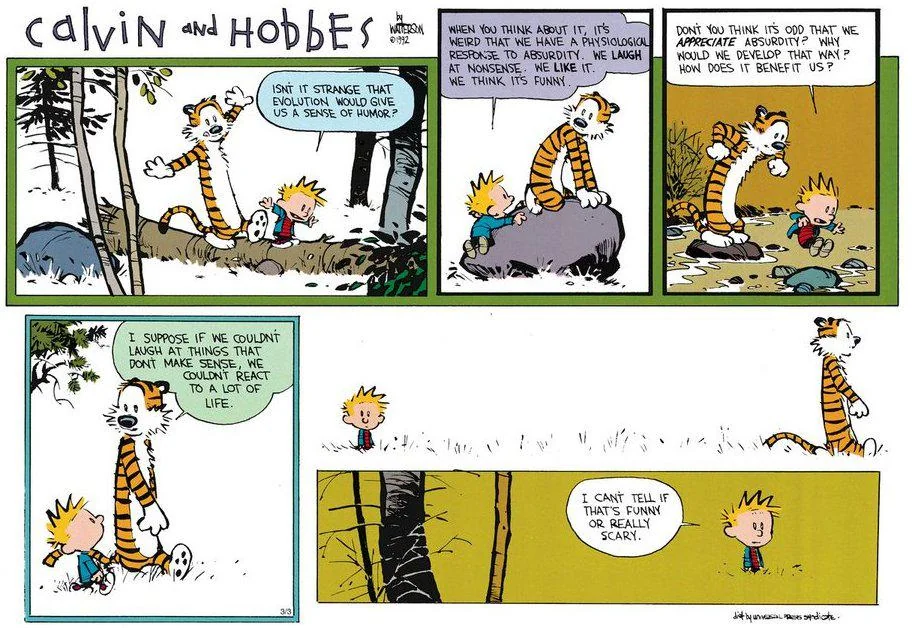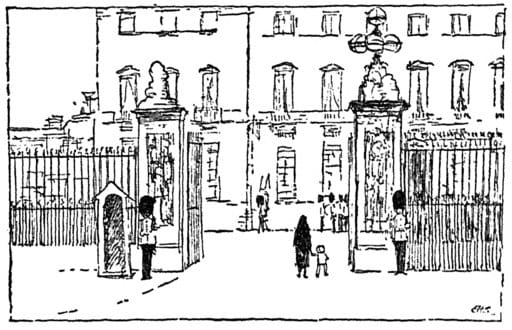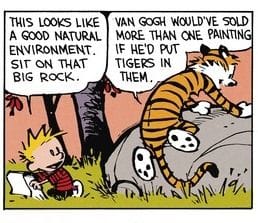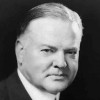We are being very careful with our children. They’ll never have to pay a psychiatrist twenty-five dollars an hour to find out why we rejected them. We’ll tell them why we rejected them. Because they’re impossible, that’s why.
Jean Kerr (1922-2003) American author and playwright [b. Bridget Jean Collins]
Essay (1957), “Please Don’t Eat the Daisies,” Please Don’t Eat the Daisies
(Source)
The most alarming sign of the state of our society now is that our leaders have the courage to sacrifice the lives of young people in war, but have not the courage to tell us that we must be less greedy and less wasteful.
When a nation once loses its regard to justice; when they do not look up it as something venerable, holy and inviolable; when any of them dare presume to lessen, affront or terrify those who have the distribution of it in their hands; when a judge is capable of being influenced by any thing that is foreign to its own merits, we may venture to pronounce that such a nation is hastening to its ruin.
Joseph Addison (1672-1719) English essayist, poet, statesman
Essay (1713-07-04), The Guardian, No. 99
(Source)
First our pleasures die — and then
Our hopes, and then our fears — and when
These are dead, the debt is due,
Dust claims dust — and we die too.Percy Bysshe Shelley (1792-1822) English poet
Poem (1820), “Death,” st. 3, Posthumous Poems (1824)
(Source)
HAMLET: O, I die, Horatio!
The potent poison quite o’ercrows my spirit.
I cannot live to hear the news from England.
But I do prophesy th’ election lights
On Fortinbras; he has my dying voice.
So tell him, with th’ occurrents, more and less,
Which have solicited — the rest is silence.
[Dies.]William Shakespeare (1564-1616) English dramatist and poet
Hamlet, Act 5, sc. 2, l. 389ff (5.2.389-395) (c. 1600)
(Source)
Just before Fortinbras and the English ambassadors enter.
In the First Folio, Hamlet moans, "O, O, O, O!" just before dying.
The first thing a cult does is tell you everyone else is lying.
But in reading great literature I become a thousand men and yet remain myself. Like the night sky in the Greek poem, I see with a myriad eyes, but it is still I who see. Here, as in worship, in love, in moral action, and in knowing, I transcend myself; and am never more myself than when I do.
C. S. Lewis (1898-1963) English writer, literary scholar, lay theologian [Clive Staples Lewis]
An Experiment in Criticism, Epilogue (1961)
(Source)
Closing words.
History is full of people who out of fear, or ignorance, or lust for power have destroyed treasures of immeasurable value which truly belong to us all. We must not let that happen again.
Carl Sagan (1934-1996) American scientist and writer
Cosmos, ep. 13 “Who Speaks for Earth?” PBS TV (1980)
(Source)
(Source (Video); dialog verified). Referring to the destruction of the Library at Alexandria. This text is not in the Cosmos book (it would fit in roughly here).
Big Brother in the form of an increasingly powerful government and in an increasingly powerful private sector will pile the records high with reasons why privacy should give way to national security, to law and order, to efficiency of operations, to scientific advancement, and the like.
William O. Douglas (1898–1980) American jurist, US Supreme Court justice (1939–75)
Points of Rebellion, ch. 1 “How America Views Dissent” (1969)
(Source)
It is easier to build strong children than to repair broken men.
Frederick Douglass (1817-1895) American abolitionist, orator, writer
(Spurious)
This quotation only begins being associated with Douglass in the early 1990s. It may be related to some of his writings, but not clearly. For more information about the quote's origins and associations see Happy 200th Birthday to Frederick Douglass.
At least let no one argue that, because an abuse cannot be suppressed without injuring those who profit from it, the fact that it has existed for a time gives it the right to last forever.
[À moins qu’on ne prétende que, parce qu’un abus ne peut être détruit sans froisser ceux qui en profitent, il suffit qu’il existe un moment pour qu’il doive durer toujours.]
Frédéric Bastiat (1801-1850) French philosopher, economist, politician
Economic Sophisms [Sophismes Économiques], 1st Series, ch. 20 “Human Labor, National Labor [Travail Humain, Travail National]” (1845) [tr. Goddard (1964)]
(Source)
See Heinlein (1939).
(Source (French)). Other translations:It is a rather singular argument to maintain that, because an abuse which has been permitted a temporary existence, cannot be corrected without wounding the interests of those who have profited by it, it ought, therefore, to claim perpetual duration.
[tr. McCord (1848)]At all events, let no one pretend that because an abuse cannot be done away with, without inconvenience to those who profit by it, what has been suffered to exist for a time should be allowed to exist for ever.
[tr. Stirling (1873)]
The shortest unit of time in the multiverse is the New York Second, defined as the period of time between the traffic lights turning green and the cab behind you honking.
If we did not flatter ourselves, the flattery of others could do us no harm.
[Si nous ne nous flattions point nous-mêmes, la flatterie des autres ne nous pourroit nuire.]
François VI, duc de La Rochefoucauld (1613-1680) French epigrammatist, memoirist, noble
Réflexions ou sentences et maximes morales [Reflections; or Sentences and Moral Maxims], ¶152 (1665-1678) [tr. Kronenberger (1959)]
(Source)
Present in the 1st (1665) edition, where it ended with "... ne nous feroit jamais de mal." See also maxim ¶158.
(Source (French)). Other translations:If we did not Flatter our selves, all the Flatteries of other People could never hurt us.
[tr. Stanhope (1694), ¶153]Did we not flatter ourselves, the flattery of others could never hurt us.
[pub. Donaldson (1783), ¶144; ed. Lepoittevin-Lacroix (1797), ¶146]Were we not to flatter ourselves, the flattery of others would never hurt us.
[ed. Carvill (1835), ¶127]If we did not flatter ourselves, the flattery of others would be very harmless.
[ed. Gowens (1851), ¶155]If we never flattered ourselves the flattery of others would not hurt us.
[tr. Bund/Friswell (1871), ¶152]Did we not flatter ourselves, the flattery of others could not harm us.
[tr. Heard (1917), ¶152]Flattery would do us no harm if we did not flatter ourselves.
[tr. Stevens (1939), ¶152]If we never flattered ourselves, we would be immune to the flattery of others
[tr. FitzGibbon (1957), ¶152]If we never flattered ourselves the flattery of others could do us no harm.
[tr. Tancock (1959), ¶152]If we did not flatter ourselves, the flattery of others could never harm us.
[tr. Whichello (2016) ¶152]
We have made great advances in understanding the problem of national security in the modern world. We no longer think in terms of American resources alone. For the most part we now understand the need for a great international system of security, and we have taken the lead in building it.
Adlai Stevenson (1900-1965) American diplomat, statesman
Speech (1952-08-27), “The Nature of Patriotism,” American Legion Convention, Madison Square Garden, New York City
(Source)
I believe in the religion of humanity. It is far better to love our fellow-men than to love God. We can help them. We cannot help him. We had better do what we can than to be always pretending to do what we cannot.
Robert Green Ingersoll (1833-1899) American lawyer, freethinker, orator
Lecture (1884-01-20), “Orthodoxy,” Tabor Opera House, Denver, Colorado
(Source)
Published as its own book in 1884.
Clothes make the man, but they do not improve the woman.
Mark Twain (1835-1910) American writer [pseud. of Samuel Clemens]
Inscription (1908-02), Eve’s Diary (1906-06)
(Source)
Handwritten inscription in the front of a first edition of Eve's Dairy. The book was banned in several locations for including illustrations (by Lester Ralph) showing a naked Eve.
See also Twain for more information.
Of governments, that of the mob is the most sanguinary, that of soldiers the most expensive, and that of civilians the most vexatious.
Charles Caleb "C. C." Colton (1780-1832) English cleric, writer, aphorist
Lacon: Or, Many Things in Few Words, Vol. 1, § 411 (1820)
(Source)
The book, the statue, the sonata, must be gone upon with the unreasoning good faith and the unflagging spirit of children at their play. Is it worth doing? — when it shall have occurred to any artist to ask himself that question, it is implicitly answered in the negative. It does not occur to the child as he plays at being a pirate on the dining-room sofa, nor to the hunter as he pursues his quarry; and the candour of the one and the ardour of the other should be united in the bosom of the artist.
The solemn ritual continued. The pastor gave his final blessing. The coffin was lowered into the grave and earth cast on it; the most final sound in the world, Phryne thought, clods thudding hollowly on the lid.
Kerry Greenwood (b. 1954) Australian author and lawyer
Phryne Fisher No. 11, Away with the Fairies, ch. 18 (2001)
(Source)
When I am dead, I hope it may be said:
“His sins were scarlet, but his books were read.”Hilaire Belloc (1870-1953) Franco-British writer, historian [Joseph Hilaire Pierre René Belloc]
Poem (1923), “Epigram 1: On His Books,” Sonnets and Verse
(Source)
Sometimes called "An Author's Hope."
“What you do in this world is a matter of no consequence,” returned my companion, bitterly. “The question is, what can you make people believe that you have done?”
Arthur Conan Doyle (1859-1930) British writer and physician
Story (1886-04), “A Study in Scarlet,” Part 2, ch. 7 [Holmes], Beeton’s Christmas Annual, Vol. 28 (1887-11-21)
(Source)
Is not every true Reformer, by the nature of him, a Priest first of all? He appeals to Heaven’s invisible justice against Earth’s visible force; knows that it, the invisible, is strong and alone strong. He is a believer in the divine truth of things; a seer, seeing through the shows of things; a worshipper, in one way or the other, of the divine truth of things; a Priest, that is. If he be not first a Priest, he will never be good for much as a Reformer.
Thomas Carlyle (1795-1881) Scottish essayist and historian
Lecture (1840-05-15), “The Hero as Priest,” Home House, Portman Square, London
(Source)
The lecture notes were collected by Carlyle into On Heroes, Hero-Worship, & the Heroic in History, Lecture 4 (1841).
Much of man’s thinking is propaganda of his appetites.
Eric Hoffer (1902-1983) American writer, philosopher, longshoreman
Passionate State of Mind, Aphorism 261 (1955)
(Source)
The man who wont beleave enny thing he kant see, aint so wize az a mule, for they will kick at a thing in the dark.
[The man who won’t believe anything he can’t see, ain’t so wise as a mule, for they will kick at a thing in the dark.]
Josh Billings (1818-1885) American humorist, aphorist [pseud. of Henry Wheeler Shaw]
Josh Billings’ Farmer’s Allminax, 1871-06 (1871 ed.)
(Source)
For men ought not to be so elated by the dignity of the affairs which they have undertaken to manage, as to have no regard to their ease; nor ought they to dwell with fondness on any sort of ease which is inconsistent with dignity.
[Neque enim rerum gerendarum dignitate homines ecferri ita convenit ut otio non prospiciant, neque ullum amplexari otium quod abhorreat a dignitate.]
Marcus Tullius Cicero (106-43 BC) Roman orator, statesman, philosopher
Pro Sestio [For Publius Sestius], ch. 45 / sec. 98 (56-02 BC) [tr. Yonge (1891)]
(Source)
Part of Cicero's discussion of otium cum dignitate ("peace with dignity"), an idealized active private life after retiring from public service. See here for more.
(Source (Latin)). Other translations:For neither is it fitting that men be so carried away by political freedom as to make no provision for tranquility, nor to accept any tranquility which is inconsistent with freedom.
[tr. Hickie (1888)]For just as it ill befits men to be so carried away by the dignity of a public career that they are indifferent in peace, so too it is unfitting for them to welcome a peace which is inconsistent with dignity.
[tr. Gardner (Loeb) (1958)]
Wars bring scars.
Benjamin Franklin (1706-1790) American statesman, scientist, philosopher, aphorist
Poor Richard (1745 ed.)
(Source)
Our understanding is conducted solely by means of the word: anyone who falsifies it betrays public society. It is the only tool by which we communicate our wishes and our thoughts; it is our soul’s interpreter: if we lack that, we can no longer hold together; we can no longer know each other. When words deceive us, it breaks all intercourse and loosens the bonds of our polity.
[Nostre intelligence se conduisant par la seule voye de la parolle, celuy qui la faulse, trahit la societé publique. C’est le seul util, par le moyen duquel se communiquent noz volontez & noz pensees : c’est le truchement de nostre ame : s’il nous faut, nous ne nous tenons plus, nous ne nous entreconnoissons plus. S’il nous trompe, il rompt tout nostre commerce, & dissoult toutes les liaisons de nostre police.]
Michel de Montaigne (1533-1592) French essayist
Essays, Book 2, ch. 18 (2.18), “Of Giving the Lie [Du Démentir]” (1578–79) [tr. Screech (1987)]
(Source)
This essay (and this passage) appeared in the 1st (1580) edition.
(Source (French)). Alternate translations:Our intelligence being onely conducted by the way of the Worde: Who so falsifieth the same, betraieth publike society. It is the onely instrument, by meanes wherof our wils and thoughts are communicated: it is the interpretour of our souls: If that faile us we hold our selves no more, we enterknow one another no longer. If it deceive us, it breaketh all our commerce, and dissolveth all bonds of our policie.
[tr. Florio (1603)]Our intelligence being by no other canal to be conveyed to one another but by words, he, who falsifies them, betrays public society: it is the only tube through which we communicate our thoughts and wills to one another; it is the interpreter of the soul, and, if it fails us, we no longer know, nor have any farther tie upon another: if that deceive us, it breaks all our correspondence, and dissolves all the bands of our government.
[tr. Cotton (1686)]Our intelligence being by no other way communicable to one another but by a particular word, he who falsifies that betrays public society. ’Tis the only way by which we communicate our thoughts and wills; ’tis the interpreter of the soul, and if it deceive us, we no longer know nor have further tie upon one another; if that deceive us, it breaks all our correspondence, and dissolves all the ties of government.
[tr. Cotton/Hazlitt (1877)]Our intelligence being conducted solely by the way of the word, he who falsifies that betrays all society. It is the only instrument by means of which our desires and our thoughts are exchanged; it is the interpreter of our souls; if it fails us, we no longer have any hold upon one another, we no longer mutually know one another. If it deceives us, it severs all our intercourse and dissolves all the ties of our government.
[tr. Ives (1925)]Our intercourse being carried on solely by means of the word, he who falsifies that is a traitor to society. It is the only instrument by which our thoughts and wills are communicated, it is the interpreter of our soul. If it fails us, we no longer hold together, we no longer know one anther. If it deceives us, it breaks up all our intercourse and dissolves all the ties of our government.
[tr. Zeitlin (1934)]Since mutual understanding is brought about solely by way of words, he who breaks his word betrays human society. It is the only instrument by means of which our wills and thoughts communicate, it is the interpreter of our soul. If it fails us, we have no more hold on each other, no more knowledge of each other. If it deceives us, it breaks up all our relations and dissolves all the bonds of our society.
[tr. Frame (1943)]
SARAH JANE: I mean, well, whatever’s in that Tower, it’s got enormous powers and, well, what can we do against it?
THE DOCTOR: What I’ve always done, Sarah Jane. Improvise.
Doctor Who (1963-1989) British science fiction television series (BBC)
20xS1 “The Five Doctors,” Part 2 (1983-11-23) [w. Terrance Dicks]
(Source)
(Source (Video); dialog confirmed). This 20th Anniversary special feature was originally broadcast as a feature-length TV movie. For later releases, it was broken into four parts/episodes.
We find what we are looking for. If we are looking for life and love and openness and growth, we are likely to find them. If we are looking for witchcraft and evil, we’ll likely find them, and we may get taken over by them.
Madeleine L'Engle (1918-2007) American writer
Speech (1983-11-16), “Dare To Be Creative,” Lecture, Library of Congress, Washington, DC
(Source)
“Oh, all right,” said the old man. “Here’s a prayer for you. Got a pencil?”
“Yes,” said Arthur.
“It goes like this. Let’s see now: ‘Protect me from knowing what I don’t need to know. Protect me from even knowing that there are things to know that I don’t know. Protect me from knowing that I decided not to know about the things that I decided not to know about. Amen.’ That’s it. It’s what you say silently inside yourself anyway, so you may as well have it out in the open.”
“Hmmmm,” said Arthur. “Well, thank you –”
“There’s another prayer that goes with it that’s very important,” continued the old man, “so you’d better jot this down, too.”
“Okay.”
“It goes, ‘Lord, lord, lord …’ It’s best to put that bit in, just in case. You can never be too sure. ‘Lord, lord, lord. Protect me from the consequences of the above prayer. Amen.’ And that’s it. Most of the trouble people get into in life comes form leaving out that last part.”Douglas Adams (1952-2001) English author, humorist, screenwriter
Hitchhiker’s Guide No. 5, Mostly Harmless, ch. 9 (1992)
(Source)
Ironically, most quotations of the above prayer leave out the "very important" second part.
The values communicated by status-insecure parents are such that their children learn to put personal success and the acquisition of power above all else. They are taught to judge people for their usefulness rather than their likableness. Their friends, and even future marriage partners, are selected and used in the service of personal advancement; love and affection take second place to knowing the right people. They are taught to eschew weaknesses and passivity, to respect authority, and to despise those who have not made the socio-economic grade. Success is equated with social esteem and material advantage, rather than with more spiritual values.
Norman F. Dixon (1922-2013) British cognitive psychologist, author, military engineer
On the Psychology of Military Incompetence, Part 2, ch. 22 “Authoritarianism” (1976)
(Source)
I have known some pacifists who wished history taught without reference to wars, and thought that children should be kept as long as possible ignorant of the cruelty in the world. But I cannot praise the “fugitive and cloistered virtue” that depends upon absence of knowledge. As soon as history is taught at all, it should be taught truthfully. If true history contradicts any moral we wish to teach, our moral must be wrong, and we had better abandon it. I quite admit that many people, including some of the most virtuous, find facts inconvenient, but that is due to a certain feebleness in their virtue. A truly robust morality can only be strengthened by the fullest knowledge of what really happens in the world.
Bertrand Russell (1872-1970) English mathematician and philosopher
Education and the Good Life, Part 2, ch. 11 “Affection and Sympathy” (1926)
(Source)
The nation that complacently and fearfully allows its artists and writers to become suspected rather than respected is no longer regarded as a nation possessed with humor or depth.
James Thurber (1894-1961) American cartoonist and writer
Essay (1958-12-07), “State of the Nation’s Humor: ‘On the Brink of Was,'” New York Times Magazine
(Source)
The Gluttons dig their own graves with their teeth.
[Le gourmans, sont leurs fosses avec leurs dents.]
James Howell (c. 1594–1666) Welsh historian and writer
Paroimiographia [Παροιμιογραφία]: Proverbs, or, Old Sayed Sawes & Adages, “Proverbs in French” (1659) [compiler]
(Source)
CALVIN: No one recognizes my hints to smother me with affection.
AUTHENTIC, adj. Indubitably true — in someone’s opinion.
Ambrose Bierce (1842-1914?) American writer and journalist
“Authentic,” “Devil’s Dictionary” column, San Francisco Wasp (1881-04-09)
(Source)
Not collected in later books.
Organizing is what you do before you do something, so that when you do it, it is not all mixed up.
A. A. Milne (1882-1956) English poet and playwright [Alan Alexander Milne]
(Attributed)
Widely quoted and attributed to Milne, but I can find no instance of it with an actual, proven citation.
Ross Webber in Management: Basic Elements of Managing Organizations (1979) gives the following:In A. A. Milne's childhood classic Winnie the Pooh, Christopher Robin tells his group of stuffed-animal friends that before they can search for the North Pole they ought to get organized. Pooh asks what getting organized means, and Christopher replies, "Organizing is what you do before you do something, so that when you do it, it is not all mixed up."
All well and good, and Christopher Robin does organize such an expedition ("expotition") to the North Pole in that book -- but never says anything of the sort. It is possible that the line derives from a Disney animated adaptation, but could not confirm this.
Samuel told the people who were asking him for a king everything that the Lord had said to him. “This is how your king will treat you,” Samuel explained.
“He will make soldiers of your sons; some of them will serve in his war chariots, others in his cavalry, and others will run before his chariots. He will make some of them officers in charge of a thousand men, and others in charge of fifty men. Your sons will have to plow his fields, harvest his crops, and make his weapons and the equipment for his chariots.
“Your daughters will have to make perfumes for him and work as his cooks and his bakers.
“He will take your best fields, vineyards, and olive groves, and give them to his officials. He will take a tenth of your grain and of your grapes for his court officers and other officials. He will take your servants and your best cattle and donkeys, and make them work for him. He will take a tenth of your flocks. And you yourselves will become his slaves.
“When that time comes, you will complain bitterly because of your king, whom you yourselves chose, but the Lord will not listen to your complaints.”
The people paid no attention to Samuel, but said, “No! We want a king.”The Bible (The Old Testament) (14th - 2nd C BC) Judeo-Christian sacred scripture [Tanakh, Hebrew Bible], incl. the Apocrypha (Deuterocanonicals)
Book 9: 1 Samuel 8:10ff (1 Sam. 8:10-19) [GNT (1992 ed.)]
(Source)
Alternate translations:And Samuel told all the words of the Lord unto the people that asked of him a king. And he said, This will be the manner of the king that shall reign over you:
He will take your sons, and appoint them for himself, for his chariots, and to be his horsemen; and some shall run before his chariots. And he will appoint him captains over thousands, and captains over fifties; and will set them to ear his ground, and to reap his harvest, and to make his instruments of war, and instruments of his chariots.
And he will take your daughters to be confectionaries, and to be cooks, and to be bakers.
And he will take your fields, and your vineyards, and your oliveyards, even the best of them, and give them to his servants. And he will take the tenth of your seed, and of your vineyards, and give to his officers, and to his servants. And he will take your menservants, and your maidservants, and your goodliest young men, and your asses, and put them to his work. He will take the tenth of your sheep: and ye shall be his servants.
And ye shall cry out in that day because of your king which ye shall have chosen you; and the Lord will not hear you in that day.
Nevertheless the people refused to obey the voice of Samuel; and they said, Nay; but we will have a king over us.
[KJV (1611)]All that Yahweh had said Samuel repeated to the people who were asking him for a king. He said, "These will be the rights of the king who is to reign over you.
"He will take your sons and assign them to his chariotry and cavalry, and they will run in front of his chariot. He will use them as leaders of a thousand and leaders of fifty; he will make them plough his ploughland and harvest his harvest and make his weapons of war and the gear for his chariots.
"He will also take your daughters as perfumers, cooks and bakers.
"He will take the best of your fields, of your vineyards and olive groves and give them to his officials. He will tithe your crops and vineyards to provide for his eunuchs and his officials. He will take the best of your manservants and maidservants, of your cattle and your donkeys, and make them work for him. He will tithe your flocks, and you yourselves will become his slaves.
"When that day comes, you will cry out on account of the king you have chosen for yourselves, but on that day God will not answer you."
The people refused to listen to the words of Samuel. They said, 'No! We want a king."
[JB (1966)]Everything that Yahweh had said, Samuel then repeated to the people who were asking him for a king. He said, "This is what the king who is to reign over you will do.
"He will take your sons and direct them to his chariotry and cavalry, and they will run in front of his chariot. He will use them as leaders of a thousand and leaders of fifty; he will make them plough his fields and gather in his harvest and make his weapons of war and the gear for his chariots.
"He will take your daughters as perfumers, cooks and bakers.
"He will take the best of your fields, your vineyards and your olive groves and give them to his officials. He will tithe your crops and vineyards to provide for his courtiers and his officials. He will take the best of your servants, men and women, of your oxen and your donkeys, and make them work for him. He will tithe your flocks, and you yourselves will become his slaves.
"When that day comes, you will cry aloud because of the king you have chosen for yourselves, but on that day Yahweh will not hear you."
The people, however, refused to listen to Samuel. They said, "No! We are determined to have a king."
[NJB (1985)]Then Samuel explained everything the Lord had said to the people who were asking for a king. “This is how the king will rule over you,” Samuel said:
“He will take your sons, and will use them for his chariots and his cavalry and as runners for his chariot. He will use them as his commanders of troops of one thousand and troops of fifty, or to do his plowing and his harvesting, or to make his weapons or parts for his chariots.
"He will take your daughters to be perfumers, cooks, or bakers.
"He will take your best fields, vineyards, and olive groves and give them to his servants. He will give one-tenth of your grain and your vineyards to his officials and servants. He will take your male and female servants, along with the best of your cattle and donkeys, and make them do his work. He will take one-tenth of your flocks, and then you yourselves will become his slaves!
"When that day comes, you will cry out because of the king you chose for yourselves, but on that day the Lord won’t answer you.”
But the people refused to listen to Samuel and said, “No! There must be a king over us."
[CEB (2011)]So Samuel reported all the words of the Lord to the people who were asking him for a king. He said, “These will be the ways of the king who will reign over you:
"He will take your sons and appoint them to his chariots and to be his horsemen, and to run before his chariots, and he will appoint for himself commanders of thousands and commanders of fifties and some to plow his ground and to reap his harvest and to make his implements of war and the equipment of his chariots.
"He will take your daughters to be perfumers and cooks and bakers.
"He will take the best of your fields and vineyards and olive orchards and give them to his courtiers. He will take one-tenth of your grain and of your vineyards and give it to his officers and his courtiers. He will take your male and female slaves and the best of your cattle and donkeys and put them to his work. He will take one-tenth of your flocks, and you shall be his slaves.
"And on that day you will cry out because of your king, whom you have chosen for yourselves, but the Lord will not answer you on that day.”
But the people refused to listen to the voice of Samuel; they said, “No! We are determined to have a king over us."
[NRSV (2021 ed.)]Samuel reported all God’s words to the people, who were asking him for a king. He said, “This will be the practice of the king who will rule over you:
"He will take your sons and appoint them as his charioteers and riders, and they will serve as outrunners for his chariots. He will appoint them as his chiefs of thousands and of fifties; or they will have to plow his fields, reap his harvest, and make his weapons and the equipment for his chariots.
"He will take your daughters as perfumers, cooks, and bakers.
"He will seize your choice fields, vineyards, and olive groves, and give them to his courtiers. He will take a tenth part of your grain and vintage and give it to his eunuchs and courtiers. He will take your male and female slaves, your choice young men, and your donkeys, and put them to work for him. He will take a tenth part of your flocks, and you shall become his slaves.
"The day will come when you cry out because of the king whom you yourselves have chosen; and God will not answer you on that day.”
But the people would not listen to Samuel’s warning. “No,” they said. “We must have a king over us."
[RJPS (2023 ed.)]
There need not be much integrity for a monarchical or despotic government to maintain or sustain itself. The force of the laws in the one, and the prince’s ever-raised arm in the other, can rule or contain the whole. But in a popular state there must be an additional spring, which is virtue.
[Il ne faut pas beaucoup de probité, pour qu’un gouvernement monarchique, ou un gouvernement despotique, se maintiennent ou se soutiennent. La force des loix dans l’un, le bras du prince toujours levé dans l’autre, reglent ou contiennent tout. Mais, dans un état populaire, il faut un ressort de plus, qui est la VERTU.]
Charles-Lewis de Secondat, Baron de Montesquieu (1689-1755) French political philosopher
Spirit of Laws [The Spirit of the Laws; De l’esprit des lois], Book 3, ch. 3 (3.3) (1748) [tr. Cohler/Miller/Stone (1989)]
(Source)
In his Preface, Montesquieu clarifies:For the understanding of the first four books of this work, it must be noted that what I call virtue in the republic is love of the homeland, in other words love of equality. It is not a moral virtue, nor a Christian virtue, it is political virtue; and this virtue is what drives republican government, as honor is what drives monarchy. I have therefore called political virtue love of the homeland and of equality.
(Source (French)). Other translations:There is no great share of probity necessary to support a monarchical or despotic government: the force of laws, in one, and the prince’s arm, in the other, are sufficient to direct and maintain the whole. But, in a popular state, one spring more is necessary, namely, virtue.
[tr. Nugent (1750)]It does not take much probity for a monarchical or despotic government to maintain or sustain itself. The force of the laws in the first, and the ever-threatening arm of the prince in the second, determine or contain everything. But a popular state needs to be driven by something more, which is VIRTUE.
[tr. Stewart (2018)]
A preoccupation with the so-called bottom line of profit and loss statements, coupled with a lust for expansion, is creating an environment in which fewer businessmen honor traditional values; where responsibility is increasingly disassociated from the exercise of power; where skill in financial manipulation is valued more than actual knowledge and experience in the business; where attention and effort is directed mostly to short-term considerations, regardless of longer range consequences.
Hyman Rickover (1900-1986) American naval engineer, submariner, US Navy Admiral
Speech (1982-01-28), Joint Economic Committee, U.S. Congress, 97th Congress, 2nd Session
(Source)
Look, examine, reflect. You hold capital punishment up as an example. Why? Because of what it teaches. And just what is it that you wish to teach by means of this example? That thou shalt not kill. And how do you teach that “thou shalt not kill”? By killing.
[Voyez, examinez, réfléchissez. Vous tenez à l’exemple [de la peine de mort]. Pourquoi? Pour ce qu’il enseigne. Que voulez-vous enseigner avec votre exemple? Qu’il ne faut pas tuer. Et comment enseignez-vous qu’il ne faut pas tuer? En tuant.]
Victor Hugo (1802-1885) French writer
Speech (1848-09-15), “Plaidoyer contre la peine de mort [An argument against the death penalty],” Assemblée Constituante, Paris
(Source)
(Source (French)).
I have been unable to find the origin of the English translation that is widely used for this quotation (let alone an English record of the entire speech).
I do have a compulsion to read in out-of-the-way places, and it is often a blessing; on the other hand, it sometimes comes between me and what I tell the children is “my work.” As a matter of fact, I will read anything rather than work. And I don’t mean interesting things like the yellow section of the telephone book or the enclosures that come with the Bloomingdale bill about McKettrick classics in sizes 12 to 20, blue, brown, or navy @ 12.95 (by the way, did you know that colored facial tissue is now on sale at the unbelievably low price of 7.85 a carton? ). The truth is that, rather than put a word on paper, I will spend a whole half hour reading the label on a milk-of-magnesia bottle. “Philips’ Milk of Magnesia,” I read with the absolute absorption of someone just stumbling on Congreve, “is prepared only by the Charles H. Philips Co., division of Sterling Drug, Inc. Not to be used when abdominal pain, nausea, vomiting, or other symptoms of appendicitis are present, etc.”
Jean Kerr (1922-2003) American author and playwright [b. Bridget Jean Collins]
Essay (1957), “Introduction,” Please Don’t Eat the Daisies
(Source)
People who live at the lower ends of watersheds cannot be isolationists — or not for long. Pretty soon they will notice that water flows, and that will set them to thinking about the people upstream who either do or do not send down their silt and pollutants and garbage. Thinking about the people upstream out to cause further thinking about the people downstream. Such pondering on the facts of gravity and the fluidity of water shows us that the golden rule speaks to a condition of absolute interdependency and obligation. People who live on rivers — or, in fact, anywhere in a watershed — might rephrase the rule in this way: Do unto those downstream as you would have those upstream do unto you.
Wendell Berry (b. 1934) American farmer, educator, poet, conservationist
Essay (1997), “Watershed and Commonwealth,” Citizenship Papers (2003)
(Source)
See Matthew 7:12.
LUCIUS: From hence, let fierce contending nations know,
What dire effects from civil discord flow.Joseph Addison (1672-1719) English essayist, poet, statesman
Cato, Act 5, sc. 4, l. 106ff (1713)
(Source)
After Cato's suicide during the civil war against Julius Caesar.
MEMBRILLO: All day long, Manny, I sort through pure sadness. I find evidence, and I piece together stories. But none of my stories end well — they all end here. And the moral of every story is the same: we may have years, we may have hours, but sooner or later, we push up flowers.
Tim Schafer (b. 1967) American video game designer.
Grim Fandango, “Year 2,” computer game (1998)
(Source)
(Source (Video); dialog confirmed). To Manny, in the morgue.
MALCOLM: Be comforted.
Let’s make us med’cines of our great revenge,
To cure this deadly grief.MACDUFF: He has no children. All my pretty ones?
Did you say “all”? O hell-kite! All?
What, all my pretty chickens and their dam
At one fell swoop?MALCOLM: Dispute it like a man.
MACDUFF: I shall do so,
But I must also feel it as a man.William Shakespeare (1564-1616) English dramatist and poet
Macbeth, Act 4, sc. 3, l. 252ff (4.3.252-261) (1606)
(Source)
Macduff, learning his family and household have been killed on Macbeth's orders.
In the jungles of central Klatch there are, indeed, lost kingdoms of mysterious Amazonian princesses who capture male explorers for specifically masculine duties. These are indeed rigorous and exhausting and the luckless victims do not last long.*
* This is because wiring plugs, putting up shelves, sorting out the funny noises in attics, and mowing lawns can eventually reduce even the strongest constitution.
And yet I am held responsible for my belief. Then why does not God give me the evidence? They say he has. In what? In an inspired book. But I do not understand it as they do. Must I be false to my understanding? They say: “When you come to die you will be sorry if you do not.” Will I be sorry when I come to die that I did not live a hypocrite? Will I be sorry that I did not say I was a Christian when I was not? Will the fact that I was honest put a thorn in the pillow of death? Cannot God forgive me for being honest? They say that when he was in Jerusalem he forgave his murderers, but now he will not forgive an honest man for differing from him on the subject of the Trinity.
Robert Green Ingersoll (1833-1899) American lawyer, freethinker, orator
Lecture (1884-01-20), “Orthodoxy,” Tabor Opera House, Denver, Colorado
(Source)
Published as its own book in 1884.
Fortune nor home not more the man can cheer,
Who lives a prey to covetise or fear,
Than may a picture’s richest hues delight
Eyes that with dropping rheum are thick of sight,
Or warm soft lotions soothe a gout-racked foot,
Or aching ears be charmed by twangling lute.
On minds unquiet joy has lost its power;
In a foul vessel everything turns sour.[Qui cupit aut metuit, iuvat ilium sic domus et res,
Ut lippum pictae tabulae, fomenta podagrum,
Auriculas citbarae collecta sorde dolentes.
Sincerumst nisi vas, quodcumque infundis acescit
Sperne voluptate.]Horace (65–8 BC) Roman poet, satirist, soldier, politician [Quintus Horatius Flaccus]
Epistles [Epistularum, Letters], Book 1, ep. 2 “To Lollius,” l. 51ff (1.2.51-54) (14 BC) [tr. Martin (1881)]
(Source)
(Source (Latin)). Other translations:The wisshinge, and the tremblinge chuffe his house and good doth please,
As portraytures the poreblind eyes, as bathes, the gowtie ease.
As musicke dothe delite the eares with matter stuffde, and sore.
The vessels sowers what so it takes if it be fowle before.
[tr. Drant (1567)]Who fears, or covets: House to him and Ground,
Are Pictures to blind men, Incentives bound
About a gouty Limb, Musick t'an ear
Dam'd up with filth. A vessel not sincere
Sowres whatsoe're you put into't.
[tr. Fanshawe; ed. Brome (1666)]He that desires or fears, diseas'd in mind,
Wealth profits him as Pictures do the blind;
Plaisters the Gouty Feet; and charming Airs
And sweetest sounds the stuft and troubled Ears:
The musty Vessels sour what they contain.
[tr. Creech (1684)]Houses and riches gratify the breast
For lucre lusting, or with fear deprest,
As pictures, glowing with a vivid light,
With painful pleasure charm a blemisht sight;
As chafing soothes the gout, or music cheers
The tingling organs of imposthum'd ears.
Your wine grows acid when the cask is foul.
[tr. Francis (1747)]Who frets or covets, wealth can please no more
Than pictures him whose eyes with rheum run o'er --
Than furst an flannels can the cripple cheer,
Or warbling music charm an aching ear.
Life's every relish lies beyond his power,
As in the tainted vessel all turns sour.
[tr. Howes (1845)]To him that is a slave to desire or to fear, house and estate do just as much good as paintings to a sore-eyed person, fomentations to the gout, music to ears afflicted with collected matter. Unless the vessel be sweet, whatever you pour into it turns sour.
[tr. Smart/Buckley (1853)]Who fears or hankers, land and country-seat
Soothe just as much as tickling gouty feet,
As pictures charm an eye inflamed and blear,
As music gratifies an ulcered ear.
Unless the vessel whence we drink is pure,
Whate'er is poured therein turns foul, be sure.
[tr. Conington (1874)]A house and wealth afford like pleasure to him who is covetous or fearful, as paintings do to a person with defective sightk, fomentations to a gouty man, or music to those whose ears suffer from accumulated dirt. Except a jar be clean, whatever you may pour in turns sour.
[tr. Elgood (1893)]If a mind is bound by greed or harassed by fears, his house, his home and all his possessions will give him no more pleasure than paintings do to the blind, warm blankets the feverish or music the deaf. In an unclean pitcher sweet milk soon turns sour.
[tr. Dana/Dana (1911)]To one with fears or cravings, house and fortune give as much pleasure as painted panels to sore eyes, warm wraps to the gout, or citherns to ears that suffer from secreted matter. Unless the vessel is clean, whatever you pour in turns sour.
[tr. Fairclough (Loeb) (1926)]His house and estate are as much of a pleasure to him
Who wants something more (or is deathly afraid he won't get it)
As dazzling canvases are to a man with sore eyes,
Or nice wram robes to a man who suffers from gout,
Or the music of mournful guitars to infected ears.
If the vase isn't clean, whatever you put in turns sour.
[tr. Palmer Bovie (1959)]A man who desires or fears enjoys his good as much
as a sore-eyed man likes art, a man with gout
fine shoes, someone with wax-plugged hears a cithara.
Anything you pour into a dirty pot gets spoiled.
[tr. Fuchs (1977)]A miser, or a man endlessly
Greedy, enjoys his mansion, his rolling meadows, as much
As a sore-eyed man takes pleasure in paintings, a gouty man relishes
Hot cloths, a man with pus-filled ears loves music.
If the cup isn't clean, everything you drink is dirty.
[tr. Raffel (1983)]If your life is governed
By cravings for what you lack, or else by fear
Of losing what you have, then what you have,
Your house and your possessions, give you as much
Pleasure as a picture gives a blind man,
Or an elegant pair of shoes gives a man with gout,
Or music gives to an ear stuffed up with wax.
A glass that isn't clean will guarantee
That whatever you pour into it will sour.
[tr. Ferry (2001)]A man with fear or desire has as much pleasure from his house
and possessions as sore eyes from a picture, gouty feet
from muffs, or ears from a lyre when aching with lumps of dirt.
When a jar is unclean, whatever you fill it with soon goes sour.
[tr. Rudd (2005 ed.)]House and fortune grant
As much pleasure to one who’s full of fear and craving
As painting to sore eyes, poultice to gouty joint,
Or lute to ears that ache from accumulated wax.
Unless the jar is clean whatever you pour in sours.
[tr. Kline (2015)]
If thought corrupts language, language can also corrupt thought.
George Orwell (1903-1950) English journalist, essayist, writer [pseud. of Eric Arthur Blair]
Essay (1946-04), “Politics and the English Language,” Horizon Magazine
(Source)
Well, I have a trade of my own. I suppose I am the only one in the world. I’m a consulting detective, if you can understand what that is. Here in London we have lots of government detectives and lots of private ones. When these fellows are at fault, they come to me, and I manage to put them on the right scent. They lay all the evidence before me, and I am generally able, by the help of my knowledge of the history of crime, to set them straight. There is a strong family resemblance about misdeeds, and if you have all the details of a thousand at your finger ends, it is odd if you can’t unravel the thousand and first.
Arthur Conan Doyle (1859-1930) British writer and physician
Story (1886-04), “A Study in Scarlet,” Part 1, ch. 2 [Holmes], Beeton’s Christmas Annual, Vol. 28 (1887-11-21)
(Source)
But his [Shakespeare’s] laughter seems to pour from him in floods; he heaps all manner of ridiculous nicknames on the butt he is bantering, tumbles and tosses him in all sorts of horse-play; you would say, with his whole heart laughs. And then, if not always the finest, it is always a genial laughter. Not at mere weakness, at misery or poverty; never. No man who can laugh, what we call laughing, will laugh at these things. It is some poor character only desiring to laugh, and have the credit of wit, that does so. Laughter means sympathy; good laughter is not “the crackling of thorns under the pot.” Even at stupidity and pretension this Shakspeare does not laugh otherwise than genially. Dogberry and Verges tickle our very hearts; and we dismiss them covered with explosions of laughter: but we like the poor fellows only the better for our laughing; and hope they will get on well there, and continue Presidents of the City-watch. Such laughter, like sunshine on the deep sea, is very beautiful to me.
Thomas Carlyle (1795-1881) Scottish essayist and historian
Lecture (1840-05-12), “The Hero as Poet,” Home House, Portman Square, London
(Source)
The spelling of Shakespeare's name is as used by Carlyle (and is one of the variants Shakespeare actually used).
The lecture notes were collected by Carlyle into On Heroes, Hero-Worship, & the Heroic in History, Lecture 3 (1841).
Whenever a minister haz preached a sermon that pleazes the whole congregashun, he probably haz preached one that the Lord wont endorse.
[Whenever a minister has preached a sermon that pleases the whole congregation, he probably haz preached one that the Lord won’t endorse.]
Josh Billings (1818-1885) American humorist, aphorist [pseud. of Henry Wheeler Shaw]
Josh Billings’ Farmer’s Allminax, 1871-06 (1871 ed.)
(Source)
Lying is a villainous vice, and an ancient writer depicts it as most shameful when he says that to lie is to manifest contempt of God together with fear of man. It is not possible to represent more fully the horror, the vileness, the outrageousness of it. For what can be conceived more villainous than to be cowardly with respect to men, and audacious with respect to God?
[C’est un vilain vice, que le mentir; & qu’un ancien peint bien honteusement, quand il dit, que c’est donner tesmoignage de mespriser Dieu, & quand & quand de craindre les hommes. Il n’est pas possible d’en representer plus richement l’horreur, la vilité & le desreiglement: Car que peut on imaginer plus vilain, que d’estre couart à l’endroit des hommes, & brave à l’endroit de Dieu?]
Michel de Montaigne (1533-1592) French essayist
Essays, Book 2, ch. 18 (2.18), “Of Giving the Lie [Du Démentir]” (1578–79) [tr. Ives (1925)]
(Source)
This essay (and passage) appeared in the 1st (1580) edition, and was expanded in each succeeding edition.
The ancient writer mentioned is Plutarch in his Life of Lysander.
(Source (French)). Alternate translations:To ly is a horrible-filthy vice; and which an auncient writer setteth forth very shamefully, when he saith, that whosoever lieth, witnesseth that he contemneth God and therewithal feareth men. It is impossible more richly to represent the horrour, the vilenesse and the disorder of it: For, What can be imagined so vile, and base, as to be a coward towardes men, and a boaster towardes God?
[tr. Florio (1603)]Lying is a base vice; a vice that one of the ancients paints in the most odious colours when he says, "That it is too manifest a contempt of God, and a fear of man." It is not possible more copiously to represent the horror, baseness, and irregularity of it; for what can be imagined more vile, than a man, who is a coward towards man, so courageous as to defy his Maker?
[tr. Cotton (1686)]Lying is a base vice; a vice that one of the ancients portrays in the most odious colors when he says, “that it is to manifest a contempt of God, and withal a fear of men.” It is not possible more fully to represent the horror, baseness, and irregularity of it; for what can a man imagine more hateful and contemptible than to be a coward toward men, and valiant against his Maker?
[tr. Cotton/Hazlitt (1877)]Lying is a base vice, and painted in its most shameful colours by one of the ancients, who says that to lie is to give proof that you despise god and at the same time are afraid of men. It is impossible to state its horror, its vileness, and its outrageousness more felicitously. For what baser thing can we imagine than to be a coward toward men and act the brave fellow toward God?
[tr. Zeitlin (1934)]Lying is an ugly vice, which an ancient paints in most shameful colors when he says that it is giving evidence of contempt for God, and at the same time of fear of men. It is not possible to represent more vividly the horror, the vileness, and the profligacy of it. For what can you imagine uglier than being a coward toward men and bold toward God?
[tr. Frame (1943)]Lying is a villein's vice, a vice which an Ancient paints full shamefully when he says that it gives testimony to contempt for God together with fear of men. It is not possible to show more richly the horror of it, its vileness and its disorderliness. For what can one imagine more serf-like than to be cowardly before men and defiant towards God?
[tr. Screech (1987)]
Many years ago, when A Wrinkle in Time was being rejected by publisher after publisher, I wrote in my journal, “I will rewrite for months or even years for an editor who sees what I am trying to do in this book and wants to make it better and stronger. But I will not, I cannot diminish and mutilate it for an editor who does not understand it and wants to weaken it.”
Now, the editors who did not understand the book and wanted the problem of evil soft peddled had every right to refuse to publish the book, as I had, sadly, the right and obligation to try to be true to it. If they refused it out of honest conviction, that was honorable. If they refused it for fear of trampling on someone else’s toes, that was, alas, the way of the world.Madeleine L'Engle (1918-2007) American writer
Speech (1983-11-16), “Dare To Be Creative,” Lecture, Library of Congress, Washington, DC
(Source)
Grown men, he told himself, in flat contradiction of centuries of accumulated evidence about the way grown men behave, do not behave like this.
Douglas Adams (1952-2001) English author, humorist, screenwriter
Hitchhiker’s Guide No. 4, So Long, and Thanks for All the Fish, ch. 11 [Arthur] (1984)
(Source)
It’s frightening to think that you mark your children merely by being yourself.
[C’est effrayant de penser qu’on marque ses enfants rien que par ce qu’on est.]
Simone de Beauvoir (1908-1986) French author, existentialist philosopher, feminist theorist
Les Belles Images, ch. 3 (1966) [tr. O’Brian (1968)]
(Source)
CHORUS: Visitations of love that come
Raging and violent on a man
Bring him neither good repute nor goodness.
But if Aphrodite descends in gentleness
No other goddess brings such delight.[ΚΥΚΛΩΨ: ἔρωτες ὑπὲρ μὲν ἄγαν ἐλθόντες οὐκ εὐδοξίαν
οὐδ᾽ ἀρετὰν παρέδωκαν ἀνδράσιν: εἰ δ᾽ ἅλις ἔλθοι
Κύπρις, οὐκ ἄλλα θεὸς εὔχαρις οὕτως.]Euripides (485?-406? BC) Greek tragic dramatist
Medea [Μήδεια], l. 627ff, Second Stasimon, Strophe 1 (431 BC) [tr. Vellacott (1963)]
(Source)
(Source (Greek)). Other translations:Th' immoderate Loves in their career,
Nor glory nor esteem attends,
But when the Cyprian Queen descends
Benignant from her starry sphere.
No Goddess can more justly claim
From man the grateful prayer.
[tr. Wodhull (1782)]When fierce conflicting passions urge
The breast where love is wont to glow,
What mind can stem the stormy surge
Which rolls the tide of human woe?
The hope of praise, the dread of shame,
Can rouse the tortur’d breast no more;
The wild desire, the guilty flame,
Absorbs each wish it felt before.
But if Affection gently thrills
The soul, by purer dreams possest,
The pleasing balm of mortal ills
In love can sooth the aching breast:
If thus thou comest in disguise,
Fair Venus! from thy native heaven,
What heart, unfeeling, would despise
The sweetest boon the Gods have given?
[tr. Byron (1807)]When with a wild impetuous sway
The Loves come rushing on the breast,
Each virtuous thought is rent away,
Each breath of fame supprest.
But when, confess'd her gentle reign,
Enchanting Venus deigns t'appear,
Of all the pow'rs of heav'n most dear,
She leads the Graces in her train.
[tr. Potter (1814)]The wild loves that force eager way
Nor worth nor fame on man confer,
But if come Cypris with meet sway
There is no gracious god like her.
[tr. Webster (1868)]When in excess and past all limits Love doth come, he brings not glory or repute to man; but if the Cyprian queen in moderate might approach, no goddess is so full of charm as she.
[tr. Coleridge (1891)]The loves, when they come too impetuously, have given neither good report nor virtue among men, but if Venus come with moderation, no other Goddess is so benign.
[tr. Buckley (1892)]Love bringeth nor glory nor honour to men when it cometh restraining
Not its unscanted excess: but if Kypris, in measure raining
Her joy, cometh down, there is none other Goddess so winsome as she.
[tr. Way (Loeb) (1894)]Alas, the Love that falleth like a flood,
Strong-winged and transitory:
Why praise ye him? What beareth he of good
To man, or glory?
Yet Love there is that moves in gentleness,
Heart-filling, sweetest of all powers that bless.
[tr. Murray (1906)]When love is in excess
It brings a man no honor
Nor any worthiness.
But if in moderation Cypris comes,
There is no other power at all so gracious.
[tr. Warner (1944)]When the Loves descend in full force they never enhance
Men’s fame or virtue, but if Aphrodite approaches
With reserve, there is no more gracious goddess.
[tr. Podlecki (1989)]Loves that come to us in excess bring no good name or goodness to men. If Aphrodite comes in moderation, no other goddess brings such happiness.
[tr. Kovacs (Loeb) (1994)]When passions come upon men in strength beyond due measure, their gift is neither one of glory nor of greatness. But if the Cyprian tempers her visit, no other goddess is so gracious.
[tr. Davie (1996)]When Aphrodite arrives in the hearts of people, with no fuss and with no exaggerated madness, she is a very enjoyable visitor but, alas, overwhelming lust brings neither honour nor glory to any one.
[tr. Theodoridis (2004)]Love coming on too strong
does not give glory or virtue
to men. But if Kypris comes in moderation,
no other goddess is so gracious.
[tr. Luschnig (2007)]Erotic love with too much passion
brings with it no fine reputation,
and nothing virtuous to men.
But if Aphrodite comes in smaller doses,
no other god is so desirable.
[tr. Johnston (2008)]Excess of passion brings no glory or honour to men.
[ed. Yeroulanos (2016)]Love that comes in great excess does not grant reputation or excellence; but if Aphrodite comes more gently, there is no other god who gives such great pleasure.
[tr. Ewans (2022)]When loves come excessive and past all limit, they bring neither good repute nor high ideals [aretē] to men; but if Aphrodite approaches in moderate strength, no goddess is so full of charm as she.
[tr. Coleridge / Ceragioli / Nagy / Hour25]
Truly, I live in dark times!
The guileless word is folly. A smooth forehead
Suggests insensitivity. The man who laughs
Has simply not yet had
The terrible news.
–
What kind of times are they, when
A talk about trees is almost a crime
Because it implies silence about so many horrors?
That man there calmly crossing the street
Is already perhaps beyond the reach of his friends
Who are in need?[Wirklich, ich lebe in finsteren Zeiten!
Das arglose Wort ist töricht. Eine glatte Stirn
Deutet auf Unempfindlichkeit hin. Der Lachende
Hat die furchtbare Nachricht
Nur noch nicht empfangen.
–
Was sind das für Zeiten, wo
Ein Gespräch über Bäume fast ein Verbrechen ist
Weil es ein Schweigen über so viele Untaten einschließt!
Der dort ruhig über die Straße geht
Ist wohl nicht mehr erreichbar für seine Freunde
Die in Not sind?]Bertolt Brecht (1898-1956) German poet, playwright, director, dramaturgist
Poem (1938 ca.), “To Those Born Later [An die Nachgeborenen],” sec. 1, Svendborger Gedichte (1939) [tr. Willet / Manheim / Fried (1976)]
(Source)
Also translated as "To Those Who Follow in Our Wake" and "To Later Generations." Written while Brecht had left Germany for Denmark ("crossing the street").
An audio recording of the poem by Brecht.
(Source (German)). Other translations:Truly, I live in dark times
The innocent word is suspect.
An unwrinkled forehead
suggests insensitivity.
He who laughs
simply has not heard
the terrible news.
-
What times are these when
a conversation about trees
is almost a crime
because it includes
so much silence
about so many outrages!
[tr. Lettau (1978)]Truly, I live in dark times!
An artless word is foolish. A smooth forehead
Points to insensitivity. He who laughs
Has not yet received
The terrible news.
-
What times are these, in which
A conversation about trees is almost a crime
For in doing so we maintain our silence about so much wrongdoing!
And he who walks quietly across the street,
Passes out of the reach of his friends
Who are in danger?
[tr. Horton (2008)]Really, I live in dark times!
Innocent words are foolish. A smooth brow
Betrays insensitivity. Anyone left laughing
Simply has not yet heard
The terrible news.
-
What are these for times, where
A discussion about trees is almost a crime
Because it involves a silence about so many misdeeds!
He there peacefully crossing the street
Is probably no longer reachable for his friends
Who are in need?
[tr. Rienas (2009)]Really, I live in dark times!
Innocent words are foolish. An unfurrowed brow
Indicates apathy. He who laughs
Just hasn’t yet received
The terrible news.
-
What times are these, in which
A conversation about trees is almost a crime
Because it implies silence about so many misdeeds!
He who quietly crosses the street
Is probably no longer within reach of his friends
Who are in need?
[tr. Renaud (2016)]Truly, I live in dark times!
Innocent words are foolish. A smooth forehead
shows insensitivity. The guy laughing
has just not received
the terrible news yet.
-
What kind of times are these, where
talking about trees is almost a crime
when it means silence about so many atrocities!
That man calmly crossing the street
is probably no longer reachable by his friends
who need help.
As long as we are not actually destroyed, we can work to gain greater understanding of other peoples and to try to present to the peoples of the world the values of our own beliefs. We can do this by demonstrating our conviction that human life is worth preserving and that we are willing to help others to enjoy benefits of our civilization just as we have enjoyed it. (20 December 1961)
Eleanor Roosevelt (1884–1962) First Lady of the US (1933–1945), politician, diplomat, activist
Column (1951-12-20), “My Day”
(Source)
Bear ye one another’s burdens, and so fulfil the law of Christ.
[Ἀλλήλων τὰ βάρη βαστάζετε καὶ οὕτως ἀναπληρώσετε τὸν νόμον τοῦ Χριστοῦ.]
The Bible (The New Testament) (AD 1st - 2nd C) Christian sacred scripture
Galatians 6: 2 [KJV (1611)]
(Source)
See Thomas à Kempis (c. 1420).
(Source (Greek)). Alternate translations:You should carry each other's troubles and fulfil the law of Christ.
[JB (1966)]Carry each other's burdens; that is how to keep the law of Christ.
[NJB (1985)]Help carry one another's burdens, and in this way you will obey the law of Christ.
[GNT (1992 ed.)]Carry each other’s burdens and so you will fulfill the law of Christ.
[CEB (2011)]Bear one another’s burdens, and in this way you will fulfill the law of Christ.
[NRSV (2021 ed.)]
Some men improve the world only by leaving it.
Oscar Wilde (1854-1900) Irish poet, wit, dramatist
(Spurious)
Not found in Wilde's writing; its earliest appearance is around AD 2000. Nor is a related quotation authentic to Wilde: "Some cause happiness wherever they go; other whenever they go," which first shows up in 1908, after Wilde's death.
Note that the orator Robert Ingersoll, discussing suppression of thought and mob mentality, wrote in his lecture "Plea for Individuality and Arraignment of the Church" (1873-12-21) (emphasis mine):It is mortifying to feel that you belong to a mental mob and cry "crucify him," because others do; that you reap what the great and brave have sown, and that you can benefit the world only by leaving it.
That is the earliest reference I can find to that phrasing, but it is unclear if the phrase was borrowed from Ingersoll and put into the mouth of Wilde.
And as for the argument that criticism [of government foreign policy] may give aid and comfort to some enemy, that is a form of blackmail unworthy of those who profess it. If it is to be accepted, we will have an end to genuine discussion of foreign policies, for it will inevitably be invoked to stop debate and criticism whenever that debate gets acrimonious or the criticism cuts too close to the bone. And to the fevered mind of the FBI, the CIA, and some Senators, criticism always gives aid and comfort to the enemy or cuts too close to
the bone.Henry Steele Commager (1902-1998) American historian, writer, activist
Essay (1965-12-18), “The Problem of Dissent,” Saturday Review
(Source)
Reprinted in Freedom and Order, Part 6 (1966).
Sections of the essay (including this portion) were read into the Congressional Record, Senate Proceedings (1969-06-26), as part of a speech by former Senator Wayne Morse (D-Oregon) at the commencement of Fairleigh Dickinson University (1969-06-07); Morse's speech was read in by Senator Gary Hart (D-Colo.).
When the savages of Louisiana want some fruit, they cut down the tree at the base and gather the fruit. That is how a despotic government works.
[Quand les sauvages de la Louisiane veulent avoir du fruit, ils coupent l’arbre au pied, & cueillent le fruit. Voilà le gouvernement despotique.]
Charles-Lewis de Secondat, Baron de Montesquieu (1689-1755) French political philosopher
Spirit of Laws [The Spirit of the Laws; De l’esprit des lois], Book 5, ch. 13 (5.13) (1748) [tr. Stewart (2018)]
(Source)
(Source (French)). Other translations:When the savages of Louisiana are desirous of fruit, they cut the tree to the root, and gather the fruit. This is an emblem of despotic government.
[tr. Nugent (1750)]When the savages of Louisiana want fruit, they cut down the tree and gather the fruit. There you have despotic government.
[tr. Cohler/Miller/Stone (1989)]
Another principle for successful application of a sophisticated technology is to resist the human inclination to hope that things will work out, despite evidence or suspicions to the contrary. This may seem obvious, but it is a human factor you must be conscious of and actively guard against. It can affect you in subtle ways, particularly when you have spent a lot of time and energy on a project and feel personally responsible for it, and thus somewhat possessive. It is a common human problem and it is not easy to admit what you thought was correct did not turn out that way.
Hyman Rickover (1900-1986) American naval engineer, submariner, US Navy Admiral
Essay (1979-05-24), Statement before the Subcommittee on Energy Research and Production, Committee on Science and Technology, US House of Representatives
(Source)
When dictatorship is a fact, revolution becomes a right.
[Quand la dictature est un fait, la révolution devient un droit.]
Victor Hugo (1802-1885) French writer
(Attributed)
While in keeping with his opposition to the regime of Napoleon III, I have been unable to find any primary source or citation in English or French for this quotation (that Time Magazine (1957-06-03) used the quote doesn't really count).
You can’t sleep until noon with the proper élan unless you have some legitimate reason for staying up until three (parties don’t count).
Jean Kerr (1922-2003) American author and playwright [b. Bridget Jean Collins]
Essay (1957), “Introduction,” Please Don’t Eat the Daisies
(Source)
The folly at the root of this foolish economy began with the idea that a corporation should be regarded, legally, as “a person.” But the limitless destructiveness of this economy comes about precisely because a corporation is not a person. A corporation, essentially, is a pile of money to which a number of persons have sold their moral allegiance. Unlike a person, a corporation does not age. It does not arrive, as most persons finally do, at a realization of the shortness and smallness of human lives; it does not come to see the future as the lifetime of the children and grandchildren of anybody in particular.
Wendell Berry (b. 1934) American farmer, educator, poet, conservationist
Essay (2000), “The Total Economy,” Citizenship Papers (2003)
(Source)
CATO: Forbear, Sempronius! — see they suffer death,
But in their deaths remember they are men.
Strain not the laws to make their tortures grievous.Joseph Addison (1672-1719) English essayist, poet, statesman
Cato, Act 3, sc. 5, l. 60ff (1713)
(Source)
In response to Sempronius' plans to torture the captured rebel soldiers before their execution, as an example to others.
SIR THOMAS MORE: Say now the king
(As he is clement, if th’ offender mourn)
Should so much come to short of your great trespass
As but to banish you, whether would you go?
What country, by the nature of your error,
Should give you harbor? Go you to France or Flanders,
To any German province, to Spain or Portugal,
Nay, any where that not adheres to England, —
Why, you must needs be strangers. Would you be pleased
To find a nation of such barbarous temper,
That, breaking out in hideous violence,
Would not afford you an abode on earth,
Whet their detested knives against your throats,
Spurn you like dogs, and like as if that God
Owed not nor made not you, nor that the claimants
Were not all appropriate to your comforts,
But chartered unto them, what would you think
To be thus used? This is the strangers’ case;
And this your mountanish inhumanity.William Shakespeare (1564-1616) English dramatist and poet
Sir Thomas More, Act 2, sc. 4, l. 105ff (c. 1592)
(Source)
Quelling rioting Englishmen who were demanding the expulsion of Flemish immigrants, telling them to consider what they themselves might do, and the conditions they might face, if they were forced to leave England.
The play was written by Anthony Munday and Henry Chettle, with revisions and edits by multiple writers. This particular scene and monologue are in what is considered to be Shakespeare's own hand.
You live through time, that little piece of time that is yours, but that piece of time is not only your own life, it is the summing-up of all the other lives that are simultaneous with yours. It is, in other words, History, and what you are is an expression of History, and you do not live your life, but somehow, your life lives you, and you are, therefore, only what History does to you.
Robert Penn Warren (1905-1989) American poet, novelist, literary critic
Band of Angels, ch. 6 (1955)
(Source)
This is sometimes cited to Warren's World Enough and Time (1950), but is not found there.
Often seen edited down:You live through that little piece of time that is yours, but that piece of time is not only your own life, it is the summing-up of all the other lives that are simultaneous with yours. [...] What you are is an expression of History.
Note that the narrator continues:That is what I have heard said, but we have to try to make sense of what we have lived, or what has lived us, and there are so many questions that cry for an answer, as children gather about your knee and cry for a sweetmeat. No, it would be better to change the comparison and say it is like children gathering about your knee to cry for a story, a bedtime story, and if you can tell the right story, then these children, then these questions, will sleep, and you can, too.
There were times that called for mindless, terror-filled panic, and times that called for measured, considered, thoughtful panic.
And the freedom of the mind, my friends, has served America well. The vigor of our political life, our capacity for change, our cultural, scientific, and industrial achievements, all derive from free inquiry, from the free mind — from the imagination, resourcefulness, and daring of men who are not afraid of new ideas. Most all of us favor free enterprise for business. Let us also favor free enterprise for the mind. For, in the last analysis, we would fight to the death to protect it.
Adlai Stevenson (1900-1965) American diplomat, statesman
Speech (1952-08-27), “The Nature of Patriotism,” American Legion Convention, Madison Square Garden, New York City
(Source)
In his infinite goodness, God invented rheumatism and gout and dyspepsia, cancers and neuralgia, and is still inventing new diseases. Not only this, but he decreed the pangs of mothers, and that by the gates of love and life should crouch the dragons of death and pain. Fearing that some might, by accident, live too long, he planted poisonous vines and herbs that looked like food. He caught the serpents he had made and gave them fangs and curious organs, ingeniously devised to distill and deposit the deadly drop. He changed the nature of the beasts, that they might feed on human flesh. He cursed a world, and tainted every spring and source of joy. He poisoned every breath of air; corrupted even light, that it might bear disease on every ray; tainted every drop of blood in human veins; touched every nerve, that it might bear the double fruit of pain and joy; decreed all accidents and mistakes that maim and hurt and kill, and set the snares of life-long grief, baited with present pleasure, — with a moment’s joy. Then and there he foreknew and foreordained all human tears. And yet all this is but the prelude, the introduction, to the infinite revenge of the good God. Increase and multiply all human griefs until the mind has reached imagination’s farthest verge, then add eternity to time, and you may faintly tell, but never can conceive, the infinite horrors of this doctrine called “The Fall of Man.”
Robert Green Ingersoll (1833-1899) American lawyer, freethinker, orator
Lecture (1884-01-20), “Orthodoxy,” Tabor Opera House, Denver, Colorado
(Source)
Published as its own book in 1884.
Religion has treated knowledge sometimes as an enemy, sometimes as a hostage; often as a captive and more often as a child; but knowledge has become of age and religion must either renounce her acquaintance , or introduce her as a companion and respect her as a friend.
Charles Caleb "C. C." Colton (1780-1832) English cleric, writer, aphorist
Lacon: Or, Many Things in Few Words, Vol. 2, § 141 (1822)
(Source)
Just now, when every one is bound, under pain of a decree in absence convicting them of lèse-respectability, to enter on some lucrative profession, and labour therein with something not far short of enthusiasm, a cry from the opposite party, who are content when they have enough, and like to look on and enjoy in the meanwhile, savours a little of bravado and gasconade. And yet this should not be. Idleness so called, which does not consist in doing nothing, but in doing a great deal not recognized in the dogmatic formularies of the ruling class, has as good a right to state its position as industry itself.
Let the man who has acquired Enough not ask for more.
A house and acreage, a pile of bronze and gold coins,
Have never been able to lower the sick man’s fever
Or drive out his worries. The proprietor must be well
If he plans to enjoy the good things he’s gathered together.[Quod satis est cui contingit, nihil amplius optet.
Non domus et fundus, non aeris acervus et auri
Aegroto doniini deduxit corpore febres,
on animo curas; valeat possessor oportet,
Si conpertatis rebus bene cogitat uti.]Horace (65–8 BC) Roman poet, satirist, soldier, politician [Quintus Horatius Flaccus]
Epistles [Epistularum, Letters], Book 1, ep. 2 “To Lollius,” l. 46ff (1.2.46-50) (14 BC) [tr. Palmer Bovie (1959)]
(Source)
(Source (Latin)). Other translations:He that hath once sufficient, let him wishe for no more:
Not howse nor grove, nor yet of gould, or silver ample store
Can rid the owners crasie corpes fro fellon shaking fever.
Nor can the mynd of man from carke, (for al their vigor) sever:
That owner needes must healthfull bee, and other men excel,
Which hauing riches competent, doth cast to use theim well.
[tr. Drant (1567)]Let him that has enough, desire no more.
Not House and Land, nor Gold and Silver Oare,
The Body's sickness, or the Mind's dispel,
To rellish wealth, the palat must be well.
[tr. Fanshawe; ed. Brome (1666)]He that hath got enough desires no more:
Did ever Lands, or heaps of Silver ease
The feav'rish Lord? Or cool the hot Disease?
Or free his Mind from Cares? He must have health,
He must be well, that would enjoy his wealth.
[tr. Creech (1684)]Blest with a competence, why wish for more?
Nor house, nor lands, nor heaps of labour'd ore
Can give their feverish lord one moment's rest,
Or drive one sorrow from his anxious breast:
The fond possessor must be blest with health,
Who rightly means to use his hoarded wealth.
[tr. Francis (1747)]Nathless who's rich, that is not satisfied? --
Who poor, but he whose wants are unsupplied?
Never did house, or land, or god afford
An hour's short respite to their sickening lord,
Sooth with soft balm the fever's throbbing smart,
Or pluck one rooted sorrow from the heart.
If health be wanting, riches quickly cloy;
'Tis vain to hoard, unless we can enjoy.
[tr. Howes (1845)]He, that has got a competency, let him wish for no more. Not a house and farm, nor a heap of brass and gold, can remove fevers from the body of their sick master, or cares from his mind. The possessor must be well, if he thinks of enjoying the things which he has accumulated.
[tr. Smart/Buckley (1853)]Having got
What will suffice you, seek no happier lot.
Not house or grounds, not heaps of brass or gold
Will rid the frame of fever's heat and cold.
Or cleanse the heart of care. He needs good health,
Body and mind, who would enjoy his wealth.
[tr. Conington (1874)]If you've enough, how vain to wish for more!
Nor house, nor lands, nor brass, nor golden store
Can of its fire the fevered frame relieve,
Or make the care-fraught spirit cease to grieve.
Sound, mind and body both, should be his health
To true account who hopes to turn his wealth.
[tr. Martin (1881)]If a sufficiency belong to any one, let him desire no more. A house and farm, a heap of brass and gold, have never removed fever from the sickly body of their possessor, nor cares from his mind. It is a necessity that their owner be sound in body and mind if he contemplate making a good use of his accumulated substance.
[tr. Elgood (1893)]But after all, enough is enough, and he who has enough is wise if he does not ask for more. A house, a farm, and a store of gold, these never drove the fever from their owner's aching body, or took the burden of care from his mind. Verily, the man of wealth must have good health if he would enjoy the fruit of all his labors.
[tr. Dana/Dana (1911)]He, to whose lot sufficient falls, should covet nothing more. No house or land, no pile of bronze or god, has ever freed the owner's sick body of fevers, or his sick mind of cares. The possessor must be sound in health, if he thinks of enjoying the stores he has gathered.
[tr. Fairclough (Loeb) (1926)]But anyone who has enough should want no more.
No house and farm, no heap of copper and gold
can drive a fever from its owner's weakened flesh
Or his worries from his soul. He must be well
if he wants good use from everything he's gathered.
[tr. Fuchs (1977)]But having enough we should never want more. No house
In town, no land, no piles of gold and bronze,
Have ever freed a man's mind, or eased the fevers
Racking his body. To enjoy treasure you must be sound
In mind, stable in body.
[tr. Raffel (1983)]The man who has enough should be satisfied
With what he has. Prosperity is never
Going to be able to cure a body that's sick
Or a mind that's sick. You've got to be well if you want
To enjoy the things you own.
[tr. Ferry (2001)]But when one is blest with enough, one shouldn't long for more.
Possessing a house or farm or a pile of bronze and gold
has never been known to expel a fever from an invalid's body
or a worry from his mind. Unless the owner has sound health
he cannot hope to enjoy the goods he has brought together.
[tr. Rudd (2005 ed.)]But he who’s handed enough, shouldn’t long for more.
Houses and land, piles of bronze and gold, have never
Freed their owner’s sick body from fever, or his spirit
From care: if he wants to enjoy the goods he’s gathered
Their possessor must be well.
[tr. Kline (2015)]
From the beginning men used God to justify the unjustifiable.
She felt that the day should not be bounced in on with rude energy, but carefully and delicately seduced into being, and children and animals were sadly impervious to reason on this matter.
Kerry Greenwood (b. 1954) Australian author and lawyer
Phryne Fisher No. 11, Away with the Fairies, ch. 1 (2001)
(Source)
FAUSTUS. Come, I think hell’s a fable.
MEPHISTOPHILES: Ay, think so still, till experience change thy mind.
Christopher "Kit" Marlowe (1564-1593) English dramatist and poet
The Tragicall History of the Life and Death of Doctor Faustus, Act 2, sc. 1 (sc. 5), l. 573ff (1594; 1604 “A” text)
(Source)
The "B" text (1594; 1616) as a slight variance in Faust's line:FAUSTUS: I think hell's a mere fable.
MEPHISTOPHILES: Aye, think so still, till experience change thy mind.
I’m not going to tell you much more of the case, Doctor. You know a conjurer gets no credit once he has explained his trick; and if I show you too much of my method of working, you will come to the conclusion that I am a very ordinary individual after all.
Arthur Conan Doyle (1859-1930) British writer and physician
Story (1886-04), “A Study in Scarlet,” Part 1, ch. 4 [Holmes], Beeton’s Christmas Annual, Vol. 28 (1887-11-21)
(Source)
Can the man say, Fiat lux, Let there be light; and out of chaos make a world? Precisely as there is light in himself, will he accomplish this.
Thomas Carlyle (1795-1881) Scottish essayist and historian
Lecture (1840-05-12), “The Hero as Poet,” Home House, Portman Square, London
(Source)
Talking about Shakespeare and his creativity.
The lecture notes were collected by Carlyle into On Heroes, Hero-Worship, & the Heroic in History, Lecture 3 (1841).
We are unified both by hating in common and by being hated in common.
Eric Hoffer (1902-1983) American writer, philosopher, longshoreman
Passionate State of Mind, Aphorism 243 (1955)
(Source)
What is the law? A thing that ought neither to be swayed by favor, nor be shattered by force, nor be corrupted by power.
[Quod enim est ius civile? Quod neque inflecti gratia neque perfringi potentia neque adulterari pecunia debeat.]
Marcus Tullius Cicero (106-43 BC) Roman orator, statesman, philosopher
Pro Caecina [For Aulus Caecina], ch. 26 / sec. 73 (c. 69 BC) [tr. @sentantiq (2013)]
(Source)
(Source (Latin)). Other translations:For, indeed, what is the civil law? A thing which can neither be bent by influence, nor broken down by power, nor adulterated by corruption.
[tr. Yonge (1856)]How may we describe it? The law is that which influence cannot bend, nor power break, nor wealth corrupt.
[tr. Grose Hodge (Loeb) (1927)]
I dont know ov enny thing more remorseless, on the face ov the earth, than 7 per cent interest.
[I don’t know of anything more remorseless on the face of the earth than 7 percent interest.]
Josh Billings (1818-1885) American humorist, aphorist [pseud. of Henry Wheeler Shaw]
Josh Billings’ Farmer’s Allminax, 1871-03 (1871 ed.)
(Source)
The first sign of corrupt morals is the banishing of truth.
[Le premier traict de la corruption des mœurs, c’est le bannissement de la verité]
Michel de Montaigne (1533-1592) French essayist
Essays, Book 2, ch. 18 (2.18), “Of Giving the Lie [Du Démentir]” (1578–79) [tr. Screech (1987)]
(Source)
This essay (and this passage) appeared in the 1st (1580) edition, and was expanded in each succeeding edition.
(Source (French)). Alternate translations:The first part of customs-corruption, is the banishment of truth.
[tr. Florio (1603)]The first step to the corruption of manners is banishing of truth.
[tr. Cotton (1686)]The first thing done in the corruption of manners is banishing truth.
[tr. Cotton/Hazlitt (1877)]The first feature of corruption of morals is the banishment of truth.
[tr. Ives (1925)]The first feature in the corruption of morals is the banishment of truth.
[tr. Zeitlin (1934)]The first stage in the corruption of morals is the banishment of truth.
[tr. Frame (1943)]
HUCKLE: As far as we know, the sea was calm and empty.
THE DOCTOR: It may be calm, but it’s never empty.
Doctor Who (1963-1989) British science fiction television series (BBC)
13×01 “Terror of the Zygons,” Part 1 (1975-08-30) [w. Robert Banks Stewart]
(Source)
(Source (Video); dialog confirmed)
The writer whose words are going to be read by children has a heavy responsibility. And yet, despite the undeniable fact that the children’s minds are tender, they are also far more tough than many people realize, and they have an openness and an ability to grapple with difficult concepts which many adults have lost. Writers of children’s literature are set apart by their willingness to confront difficult questions.
Madeleine L'Engle (1918-2007) American writer
Speech (1983-11-16), “Dare To Be Creative,” Lecture, Library of Congress, Washington, DC
(Source)
It is not a bad thing that children should occasionally, and politely, put parents in their place.
[Il n’est pas mauvais que les enfants remettent de temps en temps, avec politesse, les parents à leur place.]
Sidonie-Gabrielle Colette (1873-1954) French writer
My Mother’s House [La Maison de Claudine], “The Priest on the Wall [Le curé sur le mur]” (1922) [tr. Troubridge/McLeod (1949)]
(Source)
Kindness is invincible, if it be sincere and not hypocritical or a mere facade. For what can the most insulting of people do to you if you are consistently kind to him, and, when the occasion allows, gently advise him and quietly put him on the proper course at the very time when he is attempting to do you a mischief. “No, my son, we were born for something other than this; it is not I who am harmed, it is you, my son, who are causing harm to yourself.”
[τὸ εὐμενὲς ἀνίκητον, ἐὰν γνήσιον ᾖ καὶ μὴ σεσηρὸς μηδὲ ὑπόκρισις. τί γάρ σοι ποιήσει ὁ ὑβριστικώτατος, ἐὰν διατελῇς εὐμενὴς αὐτῷ καί, εἰ οὕτως ἔτυχε, πρᾴως παραινῇς καὶ μεταδιδάσκῃς εὐσχολῶν παῤ αὐτὸν ἐκεῖνον τὸν καιρὸν ὅτε κακοποιεῖν σε ἐπιχειρεῖ: ῾μή, τέκνον: πρὸς ἄλλο πεφύκαμεν. ἐγὼ μὲν οὐ μὴ βλαβῶ, σὺ δὲ βλάπτῃ, τέκνον.᾿]
Marcus Aurelius (AD 121-180) Roman emperor (161-180), Stoic philosopher
Meditations [To Himself; Τὰ εἰς ἑαυτόν], Book 11, ch. 18 (11.18) (AD 161-180) [tr. Hard (1997 ed.)]
(Source)
Marcus' 9th point to remember when aggravated by another's actions. Graves comments, "The good Emperor, I am afraid, had too good an opinion of human nature in general."
Hard uses the same translation in their 2011 edition.
(Source (Greek)). Alternate translations:Meekness is a thing unconquerable, if it be true and natural, and not affected or hypocritical. For how shall even the most fierce and malicious that thou shalt conceive, be able to hold on against thee, if thou shalt still continue meek and loving unto him; and that even at that time, when he is about to do thee wrong, thou shalt be well disposed, and in good temper, with all meekness to teach him, and to instruct him better? As for example; My son, we were not born for this, to hurt and annoy one another; it will be thy hurt not mine, my son.
[tr. Casaubon (1634)]Gentleness and Good Humour are invincible, provided they are of the right Stamp, without any thing of Hypocrisy, or Grimace. This is the way to Disarm the most Barbarous, and Savage: A constancy in Obliging Behaviour, will make the most Outragious Person asham'd of his Malice : The worst Body imaginable can't find in his heart to do you any Mischief, if you continue kind and unmov'd under ill Usage, if you strike in with the right opportunity for Advice; If when he is going to do you an ill Turn, you endeavour to recover his Understanding, and retrieve his Temper in such gentle Language as this. Prethee Child be quiet, Men were never made to worry one another; In earnest if you go on, my dear Friend, you'l have the worst on't; As for my part, I'm proof against every Thing, but my own Folly.
[tr. Collier (1701)]Meekness is invincible, where it is genuine, and sincere without hypocrisy. For, what can the most insolent do to you, if you steadfastly persist in kindness to him, and, upon occasion, mildly admonish and instruct him thus, at the very time he is attempting to do you an injury? “Don’t do so, my son! Nature formed us for a quite different conduct. You cannot hurt me; you hurt yourself, my son!”
[tr. Hutcheson/Moor (1742)]Consider that benevolence is invincible, if it be genuine, without affectation or hypocrisy. For what can the most brutishly injurious person do to you, if you persevere in your kindness to them, and when an opportunity offers, tenderly admonish him, and at the very time when he is going to do you an injury, thus calmly instruct him: "Forbear, my son, we were formed by nature for quite a different purpose; you cannot injure me, but you hurt yourself my son."
[tr. Graves (1792)]Consider that a good disposition is invincible if it be genuine, and not an affected smile and acting a part. For what will the most violent man do to thee, if thou continuest to be of a kind disposition towards him, and if, as opportunity offers, thou gently admonishest him and calmly correctest his errors at the very time when he is trying to do thee harm, saying, Not so, my child: we are constituted by nature for something else: I shall certainly not be injured, but thou art injuring thyself, my child.
[tr. Long (1862)]Gentleness is invincible, provided it is of the right stamp, without anything of hypocrisy or malice. This is the way to disarm the most insolent, if you continue kind and unmoved under ill usage, if you strike in with the right opportunity for advice. If when he is going to do you an ill turn you endeavour to recover his undertsanding, and retrieve his temper by such language as this: I pray you, child, be quiet, men were never made to worry one another. I shall not be injured, but you are injuring yourself, child.
[tr. Collier/Zimmern (1887)]Kindness is invincible if only it is honest, not fawning or insincere. What can the most aggressive do, if you keep persistently kind, and as ocasion offers gently remonstrate, and seize the moment when he is bent on mischief, for trying quietly to convert him to a better frame of mind. "Not so, my son, we are made for other ends; you cannot hurt me, you hurt yourself, my son."
[tr. Rendall (1898)]Meekness is invincible if it be genuine, without simper or hypocrisy. For what can the most insolent of men do to you, if you persist in civility towards him; and, if occasion offers, admonish him gently and deliberately, shew him the better way at the very moment that he is endeavouring to harm you? “Nay, my son; we were born for something better. No hurt can come to me; it is yourself you hurt, my son.”
[tr. Hutcheson/Chrystal (1902)]Kindness is irresistible, be it but sincere and no mock smile or a mask assumed. For what can the most unconscionable of men do to thee, if thou persist in being kindly to him, and when a chance is given exhort him mildly and, at the very time when he is trying to do thee harm, quietly teach him a better way thus: Nay, my child, we have been made for other things. I shall be in no wise harmed, but thou art harming thyself, my child.
[tr. Haines (Loeb) (1916)]Gentleness is invincible, if it be genuine and not sneering or hypocritical. For what can the most insolent do to you, if you continue gentle to him, and, if opportunity allows, mildly admonish him and quietly show him a better way at the very moment when he attempts to do you injury: "No, my child; we came into the world for other ends. It is not I that am harmed, but you are harmed, my child."
[tr. Farquharson (1944)]Kindness is irresistible, so long as it be genuine and without false smiles or duplicity. The most consummate impudence can do nothing, if you remain persistently kind to the offender, give him a gentle word of admonition when opportunity offers, and at the moment when he is about to vent his malice upon you bring him round quietly with "No, my son; it was not for this that we were made. I shall not be hurt; it is yourself you are hurting."
[tr. Staniforth (1964)]Kindness is invincible, provided it’s sincere -- not ironic or an act. What can even the most vicious person do if you keep treating him with kindness and gently set him straight -- if you get the chance -- correcting him cheerfully at the exact moment that he’s trying to do you harm. "No, no, my friend. That isn’t what we’re here for. It isn’t me who’s harmed by that. It’s you."
[tr. Hays (2003)]Kindness is invincible — if it is sincere, not fawning or pretense. What can the most aggressive man do to you if you continue to be kind to him? If, as opportunity arises, you gently admonish him and take your time to re-educate him at the very moment when he is trying to do you harm? "No, son, we were born for other purposes than this. There is no way that I can be harmed, but you are harming yourself, son."
[tr. Hammond (2006)]Kindness is unconquerable, so long as it is without flattery or hypocrisy. For what can the most insolent man do to you, if you continue to be kind to him and, if you have the chance, gently advise and calmly show him what is right at the very moment he is trying to harm you, saying: "No, my son. We were born for something else. I am certainly not harmed, but you bring harm to yourself?"
[tr. Needleman/Piazza (2008)]
In fact the whole antithesis between self and the rest of the world, which is implied in the doctrine of self-denial, disappears as soon as we have any genuine interest in persons or things outside ourselves. Through such interests a man comes to feel himself part of the stream of life, not a hard separate entity like a billiard-ball, which can have no relation with other such entities except that of collision.
Bertrand Russell (1872-1970) English mathematician and philosopher
Conquest of Happiness, Part 2, ch. 17 “The Happy Man” (1930)
(Source)
CALVIN: I think grown-ups just act like they know what they’re doing.
ADAM’S APPLE, n. A protuberance on the throat of a man, thoughtfully provided by Nature to keep the rope in place.
Ambrose Bierce (1842-1914?) American writer and journalist
“Adam’s Apple,” “Devil’s Dictionary” column, San Francisco Wasp (1881-05-05)
(Source)
Not collected in later books.
Popular revolt against materially strong rulers, on the other hand, may engender an almost irresistible power even if it foregoes the use of violence in the face of materially vastly superior forces. To call this “passive resistance” is certainly an ironic idea; it is one of the most active and efficient ways of action ever devised, because it cannot be countered by fighting, where there may be defeat or victory, but only by mass slaughter in which even the victor is defeated, cheated of his prize, since nobody can rule over dead men.
Hannah Arendt (1906-1975) German-American philosopher, political theorist
The Human Condition, Part 5, ch. 28 “Power and the Space of Appearance” (1958)
(Source)
Halfway down the stairs
Is a stair
Where I sit.
There isn’t any
Other stair
Quite like
It.
I’m not at the bottom,
I’m not at the top;
So this is the stair
Where
I always
Stop.A. A. Milne (1882-1956) English poet and playwright [Alan Alexander Milne]
When We Were Very Young, “Halfway Down,” st. 1 (1924)
(Source)
MEDEA: I shall never accept the favors of friends of yours,
Nor take a thing from you, so you need not offer it.
There is no benefit in the gifts of a bad man.[ΜΉΔΕΙΑ: οὔτ᾽ ἂν ξένοισι τοῖσι σοῖς χρησαίμεθ᾽ ἂν
οὔτ᾽ ἄν τι δεξαίμεσθα, μηδ᾽ ἡμῖν δίδου:
κακοῦ γὰρ ἀνδρὸς δῶρ᾽ ὄνησιν οὐκ ἔχει.]Euripides (485?-406? BC) Greek tragic dramatist
Medea [Μήδεια], l. 616ff (431 BC) [tr. Warner (1944)]
(Source)
(Source (Greek)). Other translations:No use I of thy friends
Will make, nor aught accept; thy presents spare.
For nothing which the wicked man can give
Proves beneficial.
[tr. Wodhull (1782)]I shall not use thy friends, nor will accept
Aught of thy treasures: give not me; the gifts
Of a bad man can bring no good with them.
[tr. Potter (1814)]Guest-friends of thine shall never profit me.
Nor will I aught of thee: proffer me nothing,
For there's no service in a bad man's gift.
[tr. Webster (1868)]I will have naught to do with friends of thine, naught will I receive of thee, offer it not to me; a villain's gifts can bring no blessing.
[tr. Coleridge (1891)]I will neither use thy friends, nor will I receive aught; do not give to me, for the gifts of a bad man bring no assistance.
[tr. Buckley (1892)]Thy friends! — nothing will I of friends of thine.
No whit will I receive, nor offer thou.
No profit is there in a villain's gifts.
[tr. Way (Loeb) (1894)]The gifts of a bad man bring no good with them.
[tr. Morgan; Bartlett's (1903)]I will not seek thy friends. I will not take
Thy givings. Give them not. Fruits of a stem
Unholy bring no blessing after them.
[tr. Murray (1906)]Nothing would induce me to have dealings with your friends,
Nor to take any gift of yours; so offer none.
A lying traitor's gifts carry no luck.
[tr. Vellacott (1963)]I wouldn’t have any dealings with your friends,
Nor take what you gave, don’t bother offering.
“The gifts of an evil giver bring no gain.”
[tr. Podlecki (1989)]I will accept no help from your friends nor will I take anything from you, so do not offer it. The gifts of a base man bring no benefit.
[tr. Kovacs (Loeb) (1994)]I would not on any terms resort to friends of yours or accept anything from you; make me no such offer; gifts from wicked people bring only harm.
[tr. Davie (1996)]I need neither your money nor your friends. Gifts from an evil man are of no use at all to anyone.
[tr. Theodoridis (2004)]We will not be making use of your friends;
I will not take anything from you; don’t give me anything.
The gift of a bad man brings no pleasure.
[tr. Luschnig (2007)]I’ll accept no assistance from your friends,
nor anything from you. Don’t make the offer.
Gifts from a worthless man are without value.
[tr. Johnston (2008)]I would not use your friends nor take a thing from you, so do not give; the gifts of a bad man can do great harm.
[tr. Ewans (2022)]Neither would I make use of your xenoi, nor would I accept anything from you; cease to offer it. Gifts from a kakos man bring no benefit.
[tr. Coleridge / Ceragioli / Nagy / Hour25]I will accept no help from your friends nor will I take anything from you, so do not offer it. The gifts of a dishonourable man bring no benefit.
[tr. Kovacs / Zhang / Rogak]
A consciousness of the fact that war means practically total destruction is the reason, I think, for the rising tide to prevent what seems such a senseless procedure. I understand that it is perhaps difficult for some people, whose lives have been lived with a sense of the need for military development, to envisage the possibility of being no longer needed. But the average citizen is beginning to think more and more of the need to develop machinery to settle difficulties in the world without destruction or the use of atomic bombs.
Eleanor Roosevelt (1884–1962) First Lady of the US (1933–1945), politician, diplomat, activist
Column (1961-12-20), “My Day”
(Source)
But the fruit of the Spirit is love, joy, peace, patience, kindness, goodness, faithfulness, gentleness, and self-control. There is no law against things like this.
[Ὁ δὲ καρπὸς τοῦ πνεύματός ἐστιν ἀγάπη χαρὰ εἰρήνη, μακροθυμία χρηστότης ἀγαθωσύνη, πίστις πραΰτης ἐγκράτεια· κατὰ τῶν τοιούτων οὐκ ἔστιν νόμος.]
The Bible (The New Testament) (AD 1st - 2nd C) Christian sacred scripture
Galatians 5: 22-23 [CEB (2011)]
(Source)
(Source (Greek)). Alternate translations:But the fruit of the Spirit is love, joy, peace, longsuffering, gentleness, goodness, faith, meekness, temperance: against such there is no law.
[KJV (1611)]What the Spirit brings is very different: love, joy, peace, patience, kindness, goodness, trustfulness, gentleness and self-control. There can be no law against things like that, of course.
[JB (1966)]On the other hand the fruit of the Spirit is love, joy, peace, patience, kindness, goodness, trustfulness, gentleness and self-control; no law can touch such things as these.
[NJB (1985)]But the Spirit produces love, joy, peace, patience, kindness, goodness, faithfulness, humility, and self-control. There is no law against such things as these.
[GNT (1992 ed.)]By contrast, the fruit of the Spirit is love, joy, peace, patience, kindness, generosity, faithfulness, gentleness, and self-control. There is no law against such things.
[NRSV (2021 ed.)]
Money may be the husk of many things but not the kernel. It brings you food, but not appetite; medicine, but not health; acquaintance, but not friends; servants, but not loyalty; days of joy, but not peace or happiness.
Henrik Ibsen (1828-1906) Norwegian poet and playwright
(Attributed)
Widely cited to Ibsen, but I cannot find any actual citations for its origin. The furthest I was able to track back is a 1941 issue of Readers Digest.
The meaning and purpose of dancing is the dance. Like music, also, it is fulfilled in each moment of the course. You do not play a sonata in order to reach the final chord, and if the meaning of things were simply in ends, composers would write nothing but finales.
Alan Watts (1915-1973) Anglo-American philosopher, writer
The Wisdom of Insecurity, ch. 7 “The Transformation of Life” (1951)
(Source)
And, for an instant, she stared directly into those soft blue eyes and knew, with an instinctive mammalian certainty, that the exceedingly rich were no longer even remotely human.
William Gibson (b. 1948) American-Canadian speculative fiction novelist and essayist
Count Zero, ch. 2 (1986)
(Source)
My opinions indeed on Religious Subjects ought not to be of any consequence to any but myself.
John Adams (1735–1826) American lawyer, Founding Father, statesman, US President (1797–1801)
Letter (1820-07-08) to Simon Miller
(Source)
The point is that when a nation silences criticism and dissent, it deprives itself of the power to correct its errors. The process of silencing need not be as savage as in Nazi Germany or in South Africa today; it is enough that an atmosphere be created where men prefer silence to protest. As has been observed of book-burning, it is not necessary to burn books, it is enough to discourage men from writing them.
Henry Steele Commager (1902-1998) American historian, writer, activist
Essay (1965-12-18), “The Problem of Dissent,” Saturday Review
(Source)
Reprinted in Freedom and Order, Part 6 (1966).
Sections of the essay (including this portion) were read into the Congressional Record, Senate Proceedings (1969-06-26), as part of a speech by former Senator Wayne Morse (D-Oregon) at the commencement of Fairleigh Dickinson University (1969-06-07); Morse's speech was read in by Senator Gary Hart (D-Colo.).
Extreme obedience assumes ignorance in the one who obeys; it assumes ignorance even in the one who commands; he does not have to deliberate, to doubt, or to reason; he has only to want.
[L’extrême obéissance suppose de l’ignorance dans celui qui obéit; elle en suppose même dans celui qui commande: il n’a point à délibérer, à douter, ni à raisonner; il n’a qu’à vouloir.]
Charles-Lewis de Secondat, Baron de Montesquieu (1689-1755) French political philosopher
Spirit of Laws [The Spirit of the Laws; De l’esprit des lois], Book 4, ch. 3 (4.3) (1748) [tr. Cohler/Miller/Stone (1989)]
(Source)
(Source (French)). Other translations:Excessive obedience supposes ignorance in the person that obeys: the same it supposes in him that commands; for he has no occasion to deliberate, to doubt, to reason; he has only to will.
[tr. Nugent (1750)]Extreme obedience assumes ignorance in him who obeys; it assumes ignorance even in him who commands: he has no need to deliberate, to doubt, or to reason, he has only to will.
[tr. Stewart (2018)
Sit down before fact with an open mind. Be prepared to give up every preconceived notion. Follow humbly wherever and to whatever abyss Nature leads, or you learn nothing. Don’t push out figures when the facts are going in the opposite direction.
Hyman Rickover (1900-1986) American naval engineer, submariner, US Navy Admiral
Speech (1954-03-16), “Administering a Large Military Development Project,” US Naval Postgraduate School, Monterey, California
(Source)
For, to make deserts, God, who rules mankind,
Begins with kings, and ends the work by wind.[Car pour faire un désert, Dieu, maître des vivants,
Commence par les rois et finit par les vents.]Victor Hugo (1802-1885) French writer
Poem (1876), “The Vanished City [La Ville Disparue],” Legend of the Ages: New Series [La Légende des siècles: La Nouvelle Série], No. 4 (1877) [tr. Carrington (1885)]
(Source)
Violence breeds violence. Acts of violence committed in “justice” or in affirmation of “rights” or in defense of “peace” do not end violence. They prepare and justify its continuation.
Wendell Berry (b. 1934) American farmer, educator, poet, conservationist
Essay (1999), “The Failure of War,” Citizenship Papers (2003)
(Source)
MARCUS: Oh Portius, is there not some chosen curse,
Some hidden thunder in the stores of heav’n
Red with uncommon wrath to blast the man,
Who owes his greatness to his country’s ruin?Joseph Addison (1672-1719) English essayist, poet, statesman
Cato, Act 1, sc. 1, l. 20ff (1713)
(Source)
Of Julius Caesar and his overthrow of the Roman Republic.
CALISTA: That I must die! it is my only Comfort;
Death is the Privilege of human Nature,
And Life without it were not worth our taking;
Thither the Poor, the Pris’ner, and the Mourner,
Fly for Relief, and lay their Burthens down.Nicholas Rowe (1674-1718) English poet and dramatist
The Fair Penitent, Act 5, sc. 1, l. 137ff (1703)
(Source)
SIR THOMAS MORE: Grant them removed, and grant that this your noise
Hath chid down all the majesty of England;
Imagine that you see the wretched strangers,
Their babies at their backs and their poor luggage,
Plodding tooth ports and costs for transportation,
And that you sit as kings in your desires,
Authority quite silent by your brawl,
And you in ruff of your opinions clothed;
What had you got? I’ll tell you. You had taught
How insolence and strong hand should prevail,
How order should be quelled; and by this pattern
Not one of you should live an aged man,
For other ruffians, as their fancies wrought,
With self same hand, self reasons, and self right,
Would shark on you, and men like ravenous fishes
Would feed on one another.William Shakespeare (1564-1616) English dramatist and poet
Sir Thomas More, Act 2, sc. 4, l. 55ff (c. 1592)
(Source)
Quelling rioting Englishmen who were demanding the expulsion of Flemish immigrants, noting that being part of pitiless mob violence makes one a target for future violence by others.
The play was written by Anthony Munday and Henry Chettle, with revisions and edits by multiple writers. This particular scene and monologue are in what is considered to be Shakespeare's own hand.
“I’ve never seen Death actually at work.”
“Not many have,” said Albert. “Not twice, at any rate.”
The anatomy of patriotism is complex. But surely intolerance and public irresponsibility cannot be cloaked in the shining armor of rectitude and righteousness. Nor can the denial of the right to hold ideas that are different — the freedom of man to think as he pleases. To strike freedom of the mind with the fist of patriotism is an old and ugly subtlety.
Adlai Stevenson (1900-1965) American diplomat, statesman
Speech (1952-08-27), “The Nature of Patriotism,” American Legion Convention, Madison Square Garden, New York City
(Source)
True eloquence consists in saying all that need be said and no more.
[La véritable éloquence consiste à dire tout ce qu’il faut, et à ne dire que ce qu’il faut.]
François VI, duc de La Rochefoucauld (1613-1680) French epigrammatist, memoirist, noble
Réflexions ou sentences et maximes morales [Reflections; or Sentences and Moral Maxims], ¶250 (1665-1678) [tr. FitzGibbon (1957)]
(Source)
Present in the 1st (1665) edition. In manuscript it begins "L’éloquence est de ne dire que ce qu’il faut ..."
(Source (French)). Other translations:True Eloquence consists in saying whatever is requisite, and in not saying any more then what is requisite.
[tr. Davies (1669), ¶45]True Eloquence consists in Saying all that is Fit to be Said; and Leaving Out all that is not Fit to be Said.
[tr. Stanhope (1694), ¶251]True eloquence consists in saying all that is proper, and nothing more.
[pub. Donaldson (1783), ¶110]; ed. Lepoittevin-Lacroix (1797), ¶236]True eloquence consists in saying what is proper, but nothing more.
[ed. Carvill (1835), ¶97]True eloquence consists in saying all that is necessary, and nothing but what is necessary.
[ed. Gowens (1851), ¶262]True eloquence consists in saying all that should be, not all that could be said.
[tr. Bund/Friswell (1871), ¶250]True eloquence lies in saying everything one should say, but nothing that one should not.
[tr. Heard (1917), ¶258]True eloquence consists in saying the right thing, and nothing more.
[tr. Stevens (1939), ¶250]True eloquence means saying all that is necessary and only what is necessary.
[tr. Kronenberger (1959), ¶250]True eloquence consists in saying all that is required and only what is required.
[tr. Tancock (1959), ¶250]True eloquence consists in saying, on the one hand all that we ought to say, on the other omitting what we ought not.
[tr. Whichello (2016) ¶250]
But when thoughts and words are collected and adjusted, and the whole composition at last concluded, it seldom gratifies the author, when he comes coolly and deliberately to review it, with the hopes which had been excited in the fury of the performance: novelty always captivates the mind; as our thoughts rise fresh upon us, we readily believe them just and original, which, when the pleasure of production is over, we find to be mean and common, or borrowed from the works of others, and supplied by memory rather than invention.
Samuel Johnson (1709-1784) English writer, lexicographer, critic
Essay (1754-03-02), The Adventurer, No. 138
(Source)
We are told by the Bible and by the churches that through this fall of man
“Sin and death entered the world.”
According to this, just as soon as Adam and Eve had partaken of the forbidden fruit, God began to contrive ways by which he could destroy the lives of his children. He invented all the diseases — all the fevers and coughs and colds — all the pains and plagues and pestilences — all the aches and agonies, the malaria and spores; so that when we take a breath of air we admit into our lungs unseen assassins; and, fearing that some might live too long, even under such circumstances, God invented the earthquake and volcano, the cyclone and lightning, animalcules to infest the heart and brain, so small that no eye can detect — no instrument reach. This was all owing to the disobedience of Adam and Eve!Robert Green Ingersoll (1833-1899) American lawyer, freethinker, orator
Lecture (1884-01-20), “Orthodoxy,” Tabor Opera House, Denver, Colorado
(Source)
Published as its own book in 1884.
All the best sands of my life are somehow getting into the wrong end of the hourglass. If I could only reverse it! Were it in my power to do so, would I?
Thomas Bailey Aldrich (1836-1907) American writer, poet, critic, editor
“Leaves from a Notebook,” Ponkapog Papers (1903)
(Source)
We learn more quickly and bring back to mind more readily
The things we laugh at than those we respect and revere.[Discit enim citius, meminitque libentius ilud
Quod quis deridet, quam quod probat et veneratur.]Horace (65–8 BC) Roman poet, satirist, soldier, politician [Quintus Horatius Flaccus]
Epistles [Epistularum, Letters], Book 2, ep. 1 “To Augustus,” l. 262ff (2.1.262-263) (14 BC) [tr. Palmer Bovie (1959)]
(Source)
On why he declines to write epic poetry: because he doubts his talents, and the public will remember only if it's a bad poem. Which is especially problematic if the poem is about someone (like Augustus) still alive.
(Source (Latin)). Other translations:A man may soner beare awaye and rather kepe in mynde
The thinge deryded, then that is prayse worthie in his kynde.
[tr. Drant (1567)]For Readers so malicious now are growne,
What's bad they'll con, what's good they let alone.
[tr. W. P.; ed. Brome (1666)]For what's derided by the Censuring Crowd,
Is thought on more than what is just and Good.
[tr. Creech (1684)]For quickly we discern,
With ease remember, and with pleasure learn,
Whate'er may ridicule and laughter move,
Not what deserves our best esteem and love.
[tr. Francis (1747)]For sooner caught and steadier to abide
On memory's tablet that which we deride,
Than what revere.
[tr. Howes (1845)]For one learns sooner, and more willingly remembers, that which a man derides, than that which he approves and venerates.
[tr. Smart/Buckley (1853)]For easier 'tis to learn and recollect
What moves derision than what claims respect.
[tr. Conington (1874)]For we learn quicker, gladlier recollect
What makes us laugh, than what commands respect.
[tr. Martin (1881)]The subject of our zeal sooner hears of, and is more inclined to remember, that which any one laughs at in the production than what he approves of and eulogizes.
[tr. Elgood (1893)]For a man learns more quickly and remembers more easily that which he laughs at, than that which he approves and reveres.
[E.g. (1907)]For one sooner learns
And easier remembers such concerns
As men deride that those men favor lend
And venerate.
[tr. A. F. Murison (1931); ed. Kramer, Jr. (1936)]For we all more quickly learn and easily remember
the poems we scorn than those we approve of and respect.
[tr. Fuchs (1977)]And writers of foolish poems often find
They're vividly and scornfully remembered.
[tr. Ferry (2001)]For a thing that causes merriment is always sooner learnt
and longer remembered than what commands respect and approval.
[tr. Rudd (2005 ed.)]Men remember more quickly, with greater readiness,
Things they deride, than those they approve and respect.
[tr. Kline (2015)]
Despotism can no more exist in a nation until the liberty of the press be destroyed, than night can happen before the sun is set.
Charles Caleb "C. C." Colton (1780-1832) English cleric, writer, aphorist
Lacon: Or, Many Things in Few Words, Vol. 1, § 468 (1820)
(Source)
And how many loves have perished because, from pride, or spite, or diffidence, or that unmanly shame which withholds a man from daring to betray emotion, a lover, at the critical point of the relation, has but hung his head and held his tongue?
One ought not to pay any attention to Hitler’s recent line of talk about being the friend of the poor man, the enemy of plutocracy, etc etc. Hitler’s real self is in Mein Kampf, and in his actions. He has never persecuted the rich, except when they were Jews or when they tried actively to oppose him. He stands for a centralised economy which robs the capitalist of most of his power but leaves the structure of society much as before. The State controls industry, but there are still rich and poor, masters and men. Therefore, as against genuine Socialism, the moneyed class have always been on his side. This was crystal clear at the time of the Spanish civil war, and clear again at the time when France surrendered. Hitler’s puppet government are not working men, but a gang of bankers, gaga generals and corrupt right-wing politicians.
George Orwell (1903-1950) English journalist, essayist, writer [pseud. of Eric Arthur Blair]
Essay (1941-02-19), “The Lion and the Unicorn: Socialism and the English Genius,” Part 2 “Shopkeepers at War,” sec. 3, The Searchlight Books [ed. Fyvel and Orwell]
(Source)
I want AI to do my laundry and dishes so that I can do art and writing, not for AI to do my art and writing so that I can do my laundry and dishes.
Nothing is so painful to the human mind as a great and sudden change.
Mary Wollstonecraft Shelley (1797-1851) English novelist
Frankenstein, Vol. 3, ch. 6 (1818)
(Source)
FAUSTUS: Stay, Mephistopheles, and tell me,
What good will my soul do thy lord?MEPHISTOPHILES: Enlarge his kingdom.
FAUSTUS: Is that the reason he tempts us thus?
MEPHISTOPHILES: Solamen miseris socios habuisse doloris.
[Misery loves company.]Christopher "Kit" Marlowe (1564-1593) English dramatist and poet
The Tragicall History of the Life and Death of Doctor Faustus, Act 2, sc. 1 (sc. 5), l. 477ff (1594; 1604 “A” text)
(Source)
Variants of the Latin translation:The same wording is used in the "B" text (1594; 1616), l. 427ff.
- It is a comfort to the wretched to have companions in misery.
- It is a comfort to the unfortunate to have had companions in woe.
- To the unhappy it is a comfort to have had company in misery.
- Solace of the wretched to have companions of pain.
“They say that genius is an infinite capacity for taking pains,” he [Holmes] remarked with a smile. “It’s a very bad definition, but it does apply to detective work.”
Arthur Conan Doyle (1859-1930) British writer and physician
Story (1886-04), “A Study in Scarlet,” Part 1, ch. 3, Beeton’s Christmas Annual, Vol. 28 (1887-11-21)
(Source)
Published in novel form 1888-07.
The quotation is usually attributed to Scottish historian and essayist Thomas Carlyle, but is a misquote of what he says on the subject, in his History of Frederick the Great [Friedrich the Second], Vol. 1, Book 4, ch. 3 (1858–65) (emphasis mine):The good plan itself, this comes not of its own accord; it is the fruit of "genius" (which means transcendent capacity of taking trouble, first of all); given a huge stack of tumbled thrums, it is not in your sleep that you will find the vital centre of it, or get the first thrum by the end!
Thrums, by the way, are the ends of the warp threads in a loom which remain unwoven attached to the loom when the web is cut, or more loosely a collection of leftover thread or yarn.
The "infinite capacity" phrase is sometimes misattributed to Samuel Johnson.
See more discussion here.
Interestingly, Holmes, in the same story, earlier claims not to know Carlyle's works, though he here supposedly quotes him.
Enjoying things which are pleasant; that is not the evil: it is the reducing of our moral self to slavery by them that is.
Thomas Carlyle (1795-1881) Scottish essayist and historian
Lecture (1840-05-08), “The Hero as Prophet,” Home House, Portman Square, London
(Source)
The lecture notes were collected by Carlyle into On Heroes, Hero-Worship, & the Heroic in History, Lecture 2 (1841).
To bring up a child in the way he should go, travel that way yourself once in a while.
Josh Billings (1818-1885) American humorist, aphorist [pseud. of Henry Wheeler Shaw]
Josh Billings’ Farmer’s Allminax, 1871-03 “Housekeer’s Guide” (1871 ed.)
(Source)
But there is in fact nobody who is so hostile to the Muses that he would not readily allow his own deeds to be immortalized in verse.
[Neque enim quisquam est tam aversus a Musis, qui non mandari versibus aeternum suorum laborum facile praeconium patiatur. ]
Marcus Tullius Cicero (106-43 BC) Roman orator, statesman, philosopher
Pro Archia Poeta [For Archia the Poet], ch. 9 / sec. 20 (62 BC) [tr. Guinach (1962)]
(Source)
(Source (Latin)). Other translations:For there was no one so disinclined to the Muses as not willingly to endure that the praise of his labours should be made immortal by means of verse.
[tr. Yonge (1856)]For there is nobody so averse to the Muses as not to suffer the eternal cry of their labour to be readily committed to verse.
[tr. M'Donogh Mahony (1886)]For indeed is there anyone so averse to the Muses who would not readily suffer (that) the eternal panegyric of his labors [should] be committed to verse.
[tr. Dewey (1916)]For indeed there is no man to whom the Muses are so distasteful that he will not be glad to entrust to poetry the eternal emblazonment of his achievements.
[tr. Watts (Loeb) (1923)]Indeed, there never was any one such a stranger to poetic feeling as not readily to allow the immortal advertisement of his deeds to be committed to verse.
[tr. Allcroft/Plaistowe (c. 1925)]There is no one so averse to the Muses that he would not readily submit to having an eternal monument of his own labors made in verse.
[tr. @sentantiq [Erik] (2016)]
A good marriage, if there are such, rejects the company and conditions of love; it strives to show forth those of friendship. It is a calm fellowship of life, full of fidelity, of trust, and of an endless number of useful and substantial mutual duties and obligations.
[Un bon mariage, s’il en est, refuse la compagnie & conditions de l’amour : il tasche à representer celles de l’amitié. C’est une douce societé de vie, pleine de constance, de fiance, & d’un nombre infiny d’utiles & solides offices, & obligations mutuelles.]
Michel de Montaigne (1533-1592) French essayist
Essays, Book 3, ch. 5 (3.5), “Of Some Verses of Virgil [Sur des vers de Virgile]” (1586) [tr. Ives (1925)]
(Source)
This essay (and passage) first appeared in the 2nd (1588) edition.
(Source (French)). Alternate translations:A good marriage (if any there be) refuseth the company and conditions of love; it endevoureth to present those of amity. It is a sweete society of life, full of constancie, of trust, and an infinite number of profitable and solid offices, and mutuall obligations.
[tr. Florio (1603)]A good Marriage, if it be really so, rejects the Company and Conditions of Love and tries to represent those of Friendship. 'Tis a sweet Society of Life, full of Constancy, Trust, and an infinite Number of useful and solid Offices and mutual Obligations.
[tr. Cotton (1686)]A good marriage, if there be any such, rejects the company and conditions of love, and tries to represent those of friendship. ’Tis a sweet society of life, full of constancy, trust, and an infinite number of useful and solid services and mutual obligations.
[tr. Cotton/Hazlitt (1877)]A good marriage, if there is such a thing, rejects the company and conditions of love. It tries to imitate those of friendship. It is a sweet bond of life, full of constancy, of trust, and of an infinite nuimber of useful and substantial services and mutual obligations.
[tr. Zeitlin (1934)]A good marriage, if such there be, rejects the company and conditions of love. It tries to reproduce those of friendship. It is a sweet association in life, full of constancy, trust, and an infinite number of useful and solid services and mutual obligations.
[tr. Frame (1943)]A good marriage (if there be such a thing) rejects the company and conditions of Cupid: it strives to reproduce those of loving-friendship. It is a pleasant fellowship for life, full of constancy, trust and an infinity of solid useful services and mutual duties.
[tr. Screech (1987)]
PILOT: Stop! Stop! You’re breaking the law!
THE DOCTOR: Bad laws were made to be broken.
Doctor Who (1963-1989) British science fiction television series (BBC)
04×07 “The Macra Terror,” Part 4 (1967-04-01) [w. Ian Stuart Black]
(Source)
(Source (Video); dialog verified)
We think because we have words, not the other way around, and the greater our vocabulary, the greater our ability to think conceptually. The first people a dictator puts in jail are the writers, the teachers, the librarians — because these people are dangerous. They have enough vocabulary to recognize injustice and to speak out loudly about it. Let us have the courage to go on being dangerous people.
Madeleine L'Engle (1918-2007) American writer
Speech (1983-11-16), “Dare To Be Creative,” Lecture, Library of Congress, Washington, DC
(Source)
NARRATOR: In the beginning the Universe was created. This has made a lot of people very angry and been widely regarded as a bad move.
Douglas Adams (1952-2001) English author, humorist, screenwriter
Hitchhiker’s Guide to the Galaxy, Phase 1, “Fit the 5th” (BBC radio) (1978-04-05)
(Source)
This passage, without change, appears in the second novelization, The Restaurant at the End of the Universe, ch. 1 (1980).
Tell yourself, when you feel exasperated and out of all patience, that this mortal life endures but a moment; it will not be long before we shall one and all have been laid to rest.
[ὅταν λίαν ἀγανακτῇς ἢ καὶ δυσπαθῇς, ἀκαριαῖος ὁ ἀνθρώπειος βίος καὶ μετ᾿ ὀλίγον πάντες ἐξετάθημεν.]
Marcus Aurelius (AD 121-180) Roman emperor (161-180), Stoic philosopher
Meditations [To Himself; Τὰ εἰς ἑαυτόν], Book 11, ch. 18 (11.18) (AD 161-180) [tr. Staniforth (1964)]
(Source)
Marcus' 6th point to remember when aggravated by another's actions.
(Source (Greek)). Alternate translations:That whensoever thou doest take on grievously, or makest great woe, little doest thou remember then that a man's life is but for a moment of time, and that within a while we shall all be in our graves.
[tr. Casaubon (1634)]When you are most Angry and Gall'd, remember that Humane Life lasts but a Moment, and that we shall all of us very quickly , be laid in our Graves.
[tr. Collier (1701)]When your anger and resentment is highest, remember human life is but for a moment. We shall be all presently stretched out dead corpses.
[tr. Hutcheson/Moor (1742)]When you are excessively provoked and suffer some real injury, reflect that human life is but of a moment's duration, and that in a short time we shall all be laid in our tombes together.
[tr. Graves (1792)]Consider when thou art much vexed or grieved, that man's life is only a moment, and after a short time we are all laid out dead.
[tr. Long (1862)]When you are most angry and vexed remember that human life lasts but a moment, and that we shall all of us very quickly be laid in our graves.
[tr. Collier/Zimmern (1887)]When sorely provoked and out of patience, remember that man's life is but for a moment; a little while, and we all lie stretched in death.
[tr. Rendall (1898)]When you are vexed or worried overmuch, remember that man’s life is but for a moment, and that in a little we shall all be laid to rest.
[tr. Hutcheson/Chrystal (1902)]When thou art above measure angry or even out of patience, bethink thee that man's life is momentary, and in a little while we shall all have been laid out.
[tr. Haines (Loeb) (1916)]When you are highly indignant or actually suffering, that man's life is but a moment, and in a little we are one and all laid low in death.
[tr. Farquharson (1944)]When you are annoyed beyond measure and losing all patience, remember that human life lasts but a moment, and that in a short while we shall all have been laid to rest.
[tr. Hard (1997 ed. and 2011 ed.)]When you lose your temper, or even feel irritated: that human life is very short. Before long all of us will be laid out side by side.
[tr. Hays (2003)]When you are high in indignation and perhaps losing patience, remember that human life is a mere fragment of time and shortly we are all in our grave.
[tr. Hammond (2006)]Whenever you are excessively disturbed or even suffering, remember that human life lasts only a moment and that in a short time we will all be laid out for burial.
[tr. Needleman/Piazza (2008)]Whenever you are really angry and upset, [remember] that human life is short and soon we will all be in the ground.
[tr. @sentantiq (2020)]
Always obey your parents, when they are present. This is the best policy in the long run, because if you don’t, they will make you. Most parents think they know better than you do, and you can generally make more by humoring that superstition than you can by acting on your own better judgment.
Mark Twain (1835-1910) American writer [pseud. of Samuel Clemens]
Essay (1882), “Advice to Youth”
(Source)
A satirical essay sometimes labeled as a speech to the Boston Saturday Morning Club (1882-04-15).
Administrivia: WIST by Email
I have become seriously dissatisfied by the number and type of advertisements showing up in the WIST-by-email feed (powered by Follow.It). I am testing out some alternatives which I will announce once I’m satisfied of their reliability and non-annoyingness.
The happy life is to an extraordinary extent the same as the good life. Professional moralists have made too much of self-denial, and in so doing have put the emphasis in the wrong place. Conscious self-denial leaves a man self-absorbed and vividly aware of what he has sacrificed; in consequence it fails often of its immediate object and almost always of its ultimate purpose. What is needed is not self-denial, but that kind of direction of interest outward which will lead spontaneously and naturally to the same acts that a person absorbed in the pursuit of his own virtue could only perform by means of conscious self-denial.
Bertrand Russell (1872-1970) English mathematician and philosopher
Conquest of Happiness, Part 2, ch. 17 “The Happy Man” (1930)
(Source)
Sometimes the poor are praised for being thrifty. But to recommend thrift to the poor is both grotesque and insulting. It is like advising a man who is starving to eat less.
Oscar Wilde (1854-1900) Irish poet, wit, dramatist
Essay (1891-02), “The Soul of Man Under Socialism,” Fortnightly Review, Vol. 49 (ns)
(Source)
The provision of the Constitution giving the war-making power to Congress, was dictated, as I understand it, by the following reasons. Kings had always been involving and impoverishing their people in wars, pretending generally, if not always, that the good of the people was the object. This, our Convention understood to be the most oppressive of all Kingly oppressions; and they resolved to so frame the Constitution that no one man should hold the power of bringing this oppression upon us. But your view destroys the whole matter, and places our President where kings have always stood.
Abraham Lincoln (1809-1865) American lawyer, politician, US President (1861-65)
Letter (1848-02-15) to William H. Herndon
(Source)
Lincoln understood Herndon to be proposing that the President, on their own initiative and judgment, was entitled to preemptively invade another country to repel an anticipated invasion. Herndon felt this principle justified Polk's sending of troops into disputed territory, which led to the Mexican-American War (1846-1848), though Polk didn't justify his actions in that way.
CALVIN: Isn’t it strange that evolution would give us a sense of humor? When you think about it, it’s weird that we have a physiological response to absurdity. We laugh at nonsense. We like it. We think it’s funny. Don’t you think it’s odd that we appreciate absurdity? Why would we develop that way? How does it benefit us?
HOBBES: I suppose if we couldn’t laugh at things that don’t make sense, we couldn’t react to a lot of life.
CALVIN: (after a pause) I can’t tell if that’s funny or really scary.
ADAGE, n. A hoary-headed platitude that is kicked along the centuries until nothing is left of it but its clothes. A “saw” which has worn out its teeth on the human understanding.
Ambrose Bierce (1842-1914?) American writer and journalist
“Adage,” “Devil’s Dictionary” column, San Francisco Wasp (1881-03-05)
(Source)
Not collected in later books. Instead, in The Cynic's Word Book (1906), he changed it to "Boned wisdom for weak teeth."
They’re changing guard at Buckingham Palace —
Christopher Robin went down with Alice.
They’ve great big parties inside the grounds.
“I wouldn’t be King for a hundred pounds,”
Says Alice.
A. A. Milne (1882-1956) English poet and playwright [Alan Alexander Milne]
When We Were Very Young, “Buckingham Palace,” st. 4 (1924)
(Source)
MEDEA: I think the unjust man who can speak cleverly
incurs the greatest penalty for, feeling confident
to cloak injustice in fair speech,
he dares the utmost villainy.[ΜΉΔΕΙΑ: ἐμοὶ γὰρ ὅστις ἄδικος ὢν σοφὸς λέγειν
πέφυκε, πλείστην ζημίαν ὀφλισκάνει:
γλώσσῃ γὰρ αὐχῶν τἄδικ᾽ εὖ περιστελεῖν
τολμᾷ πανουργεῖν.]Euripides (485?-406? BC) Greek tragic dramatist
Medea [Μήδεια], l. 580ff (431 BC) [tr. Ewans (2022)]
(Source)
(Source (Greek)). Other translations:In my judgement, he
Who tramples on the laws, but can express
His thoughts with plausibility, deserves
Severest punishment: for that injustice
On which he glories, with his artful tongue.
That he a fair appearance can bestow,
He dares to practise.
[tr. Wodhull (1782)]Th' injurious man, whose tongue
Flows with pernicious rhetoric, I hold
To merit the severest punishment.
For confident his speech can varnish o'er
The blackest deeds, his craft dares venture on them.
[tr. Potter (1814)]For him who does wrong and is wise to gloze it
I hold worth worser doom. For making sure
He'll show wrong gracious with his tongue, he's bold
To every crime.
[tr. Webster (1868)]To my mind, whoso hath skill to fence with words in an unjust cause, incurs the heaviest penalty; for such an one, confident that he can cast a decent veil of words o'er his injustice, dares to practise it.
[tr. Coleridge (1891)]In my judgment, whatever man being unjust, is deeply skilled in argument, merits the severest punishment. For vaunting that with his tongue he can well gloze over injustice, he dares to work deceit.
[tr. Buckley (1892)]For in my sight the villain subtle-tongued
Getteth himself for gain exceeding loss,
Who, confident his tongue can gloze the wrong,
Becomes a bold knave.
[tr. Way (Loeb) (1894)]To me it seemeth, when
A crafty tongue is given to evil men
'Tis like to wreck, not help them. Their own brain
Tempts them with lies to dare and dare again,
Till .... [tr. Murray (1906)]I think that the plausible speaker
Who is a villain deserves the greatest punishment.
Confident in his tongue’s power to adorn evil,
He stops at nothing.
[tr. Warner (1944)]To me, a wicked man who is also eloquent
Seems the most guilty of them all. He’ll cut your throat
As bold as brass, because he knows he can dress up murder
In handsome words.
[tr. Vellacott (1963)]For me, the man who is a villain, but clever
In speech, would have to pay the highest fine;
Confident of cloaking his villainy in fine words,
He dares anything.
[tr. Podlecki (1989)]To my mind, the plausible speaker who is a scoundrel incurs the greatest punishment. For since he is confident that he can cleverly cloak injustice with his words, his boldness stops at no knavery.
[tr. Kovacs (Loeb) (1994)]For in my eyes the criminal with a gift for speaking deserves the worst of punishments. So confident is he in his tongue’s ability to dress his foul thoughts in fair words, there is nothing he dares not do.
[tr. Davie (1996)]What I believe, for example is the more eloquent the misfit, the greater the punishment he deserves because, thinking that his eloquence and his pretty words will get him out of any injustice, he has the audacity to commit even greater evils.
[tr. Theodoridis (2004)]In my opinion,
the unjust man who speaks so plausibly
brings on himself the harshest punishment.
Since he’s sure his tongue can hide injustice,
he dares anything.
[tr. Johnston (2008), l. 689ff]To my mind, whoever is naturally sophos in speaking but has no dikē deserves the heaviest punishment. Such a man boasts that he can cast a decent veil of words over his unjust deeds, and boldly proceeds to wickedness.
[tr. Coleridge / Ceragioli / Nagy / Hour25]To my mind, the plausible speaker who is a scoundrel incurs the greatest punishment. For since he is confident that he can cleverly cloak injustice with his words, his boldness stops at no dishonesty.
[tr. Kovacs / Zhang / Rogak]
The appreciation of many things in which we are not proficient ourselves but which we have learned to enjoy is one of the important things to cultivate in modern education. The arts in every field — music, drama, sculpture, painting — we can learn to appreciate and enjoy. We need not be artists, but we should be able to appreciate the work of artists.
Eleanor Roosevelt (1884–1962) First Lady of the US (1933–1945), politician, diplomat, activist
Column (1958-11-05), “My Day”
(Source)
All baptised in Christ, you have all clothed yourselves in Christ, and there are no more distinctions between Jew and Greek, slave and free, male and female, but all of you are one in Christ Jesus.
[ὅσοι γὰρ εἰς Χριστὸν ἐβαπτίσθητε, Χριστὸν ἐνεδύσασθε. οὐκ ἔνι Ἰουδαῖος οὐδὲ Ἕλλην, οὐκ ἔνι δοῦλος οὐδὲ ἐλεύθερος, οὐκ ἔνι ἄρσεν καὶ θῆλυ· πάντες γὰρ ὑμεῖς εἷς ἐστε ἐν Χριστῷ Ἰησοῦ.]
The Bible (The New Testament) (AD 1st - 2nd C) Christian sacred scripture
Galatians 3: 27–28 [JB (1966)]
(Source)
(Source (Greek)). Alternate translations:For as many of you as have been baptized into Christ have put on Christ. There is neither Jew nor Greek, there is neither bond nor free, there is neither male nor female: for ye are all one in Christ Jesus.
[KJV (1611)]Every one of you that has been baptised has been clothed in Christ. There can be neither Jew nor Greek, there can be neither slave nor freeman, there can be neither male nor female -- for you are all one in Christ Jesus.
[NJB (1985)]You were baptized into union with Christ, and now you are clothed, so to speak, with the life of Christ himself. So there is no difference between Jews and Gentiles, between slaves and free people, between men and women; you are all one in union with Christ Jesus.
[GNT (1992 ed.)]All of you who were baptized into Christ have clothed yourselves with Christ. There is neither Jew nor Greek; there is neither slave nor free; nor is there male and female, for you are all one in Christ Jesus.
[CEB (2011)]As many of you as were baptized into Christ have clothed yourselves with Christ. There is no longer Jew or Greek; there is no longer slave or free; there is no longer male and female, for all of you are one in Christ Jesus.
[NRSV (2021 ed.)]
But this we can say with certainty: a government and a society that silences those who dissent is one that has lost its way. This we can say: that what is essential in a free society is that there should be an atmosphere where those who wish to dissent and even to demonstrate can do so without fear of recrimination or vilification.
Henry Steele Commager (1902-1998) American historian, writer, activist
Essay (1965-12-18), “The Problem of Dissent,” Saturday Review
(Source)
Reprinted in Freedom and Order, Part 6 (1966).
It is not the young people that degenerate: they are not spoilt till those of maturer age are already sunk into corruption.
[Ce n’est point le peuple naissant qui dégénere ; il ne se perd que lorsque les hommes faits sont déja corrompus.]
Charles-Lewis de Secondat, Baron de Montesquieu (1689-1755) French political philosopher
Spirit of Laws [The Spirit of the Laws; De l’esprit des lois], Book 4, ch. 5 (4.5) (1748) [tr. Nugent (1750)]
(Source)
On society's need to educate the young into a love for the republic.
(Source (French)). Other translations:It is not young people who degenerate; they are ruined only when grown men have already been corrupted.
[tr. Cohler/Miller/Stone (1989)]It is not the rising people that degenerates ; it only declines when the fully-formed men are already corrupted.
[tr. Stewart (2018)]
Gilgamesh, where are you roaming?
You will never find the eternal life
that you seek. When the gods created mankind,
they also created death, and they held back
eternal life for themselves alone.
Humans are born, they live, and then they die,
this is the order that the gods have decreed.
But until the end comes, enjoy your life,
spend it in happiness, not despair.
Savor your food, make each of your days
a delight, bathe and anoint yourself,
wear bright clothes that are sparkling clean,
let music and dancing fill your house,
love the child who holds you by the hand,
and give your wife pleasure in your embrace.
That is the best way for a man to live.Epic of Gilgamesh (c. 2100–1200 BC) Sumerian myth
Tablet 10, col. 3 [Siduri] [tr. Mitchell (2004)]
(Source)
Said by Siduri, the tavern keeper, to Gilgamesh, who was seeking for immortality after Enkidu's death. In some versions, this is said by the ferryman Urshanabi.
Other translations:Why, O Gish, does thou run about?
The life that thou seekest, thou wilt not find.
when the gods created mankind,
Death they imposed on mankind;
Life they kept in their power.
Thou, O Gish, fill thy belly,
Day and night do you rejoice,
Daily make a rejoicing!
Day and night a renewal of jollification!
Let thy clothes be clean,
Wash thy head and pour water over thee!
Care for the little one who takes hold of thy hand!
Let the wife rejoice in thy bosom!
[tr. Jastrow/Clay (1920)]Gilgamesh, where are you hurrying to? You will never find the life for which you are looking. When the gods created man they allotted to him death, but life they retained in their own keeping. As for you, Gilgamesh, fill your belly with good things; day and night, night and day, dance and be merry, feast and rejoice. Let your clothes be fresh, bathe yourself in water, cherish the little child that holds your hand, and make your wife happy in your embrace; for this too is the lot of man.
[tr. Sandars (1960)]Gilgamesh, where are you wandering? The life that you are seeking all around you will not find. When the gods created mankind they fixed Death for mankind, and held back Life in their own hands. Now you, Gilgamesh, let your belly be full! Be happy day and night, of each day make a party, dance in circles day and night! Let your clothes be sparkling clean, let your head be clean, wash yourself with water! Attend to the little one who holds onto your hand, let a wife delight in your embrace. This is the [true] task of mankind.
[tr. Kovacs (1989)][...] Remember always, mighty king, that gods decreed the fate of all many years ago. They alone are let to be eternal, while we frail humans die as you yourself must someday do. What is best for us to do now to sing and dance. Relish warm food and cool drinks. Cherish children to whom your love gives life. Bathe easily, in sweet, refreshing waters. Play joyfully with your chosen wife. It is the will of the gods for you to smile on simple pleasure in the leisure time of your short days.
[tr. Jackson (1997)][...] But you, Gilgamesh, let your belly be full,
enjoy yourself always by day and by night!
Make merry each day,
dance and play day and night!
Let your clothes be clean,
let your head be washed, may you bathe in water!
Gaze on the child who holds your hand,
let your wife enjoy your repeated embrace!
[tr. George (1999)]What you want, you cannot have. You will not find a life that does not die. When maknind was created by the gods, they kept undying life for themselve; they gave death to man.
So, Gilgamesh, fill your stomach. Enjoy yourself. Take pleasure every day and every night in every way you can. Play. Dance. Refresh yourself with baths. Wash your hair. Put on clean clothes. Take your child's hand in yours and take your wife on your lap. That is life.
[tr. Harris (2001)]Thy constant grief shall never cease; nor mild
Thy life shall ever be if thou persist
Upon this foolish quest; thy deeds resist
The will of heaven's way's the gods bestowed
On us the ways of death with sorrow owed
To every living man; the gods reserved
Eternal life for their delight; -- unnerved
By this? This is the scheme of things, -- accept
Thy lot; enjoy the sun, thy children kept
In later years, and fleeting life today;
Remove thy needless burden; come what may.
[tr. Watson (2023)]
I have for some time thought that a few of our present day ills stem from this childish faith in the existence of perfect answers. It requires a degree of maturity to realize that all solutions are partial ones.
Hyman Rickover (1900-1986) American naval engineer, submariner, US Navy Admiral
Speech (1954-03-16), “Administering a Large Military Development Project,” US Naval Postgraduate School, Monterey, California
(Source)
Men are still men. The despot’s wickedness
Comes of ill teaching, and of power’s excess, —
Comes of the purple he from childhood wears,
Slaves would be tyrants if the chance were theirs.[L’homme est homme toujours; les crimes du despote
Sont faits par sa puissance, ombre où son âme flotte,
Par la pourpre qu’il traîne et dont on le revêt,
Et l’esclave serait tyran s’il le pouvait.]Victor Hugo (1802-1885) French writer
Poem (1876), “The Vanished City [La Ville Disparue],” Legend of the Ages: New Series [La Légende des siècles: La Nouvelle Série], No. 4 (1877) [tr. Carrington (1885)]
(Source)
If you know even as little history as I do, it is hard not to doubt the efficacy of modern war as a solution to any problem except that of retribution — the “justice” of exchanging one damage for another.
Wendell Berry (b. 1934) American farmer, educator, poet, conservationist
Essay (1999), “The Failure of War,” Citizenship Papers (2003)
(Source)
And so, you see, simplicity
Requires that our lot
Be that we exit, when we must,
With only what we brought.Bruce Holland Rogers (b. 1958) American author [pseud. Hanovi Braddock]
“A Common Night,” Fantastic Alice (1995) [ed. Margaret Weis]
(Source)
HELENA: Things base and vile, holding no quantity,
Love can transpose to form and dignity.
Love looks not with the eyes but with the mind;
And therefore is winged Cupid painted blind.
Nor hath Love’s mind of any judgment taste.
Wings, and no eyes, figure unheedy haste.
And therefore is Love said to be a child
Because in choice he is so oft beguiled.William Shakespeare (1564-1616) English dramatist and poet
Midsummer Night’s Dream, Act 1, sc. 1, ll. 238ff (1.1.238-245) (1605)
(Source)
There are men among us who use “patriotism” as a club for attacking other Americans. What can we say for the self-styled patriot who thinks that a Negro, a Jew, a Catholic, or a Japanese-American is less an American than he? That betrays the deepest article of our faith, the belief in individual liberty and equality which has always been the heart and soul of the American idea.
Adlai Stevenson (1900-1965) American diplomat, statesman
Speech (1952-08-27), “The Nature of Patriotism,” American Legion Convention, Madison Square Garden, New York City
(Source)
Our readiness to think ill of people without sufficiently examining the matter is based on laziness and pride. We want to find people guilty, we don’t want the bother of studying their crimes.
[La promptitude à croire le mal, sans l’avoir assez examiné, est un effet de l’orgueil et de la paresse: on veut trouver des coupables, et on ne veut pas se donner la peine d’examiner les crimes.]
François VI, duc de La Rochefoucauld (1613-1680) French epigrammatist, memoirist, noble
Réflexions ou sentences et maximes morales [Reflections; or Sentences and Moral Maxims], ¶267 (1665-1678) [tr. Kronenberger (1959)]
(Source)
Present in the 1st Edition. Variant: "... un effet de la paresse et de l'orguieil."
Another 1665 variant:La promptitude avec laquelle nous croyons le mal, sans l’avoir assez examiné, est un effet de la paresse et de l’orgueil.
[The readiness with which we believe evil, without having examined it sufficiently, is an effect of laziness and pride.]
Manuscript variant: "... est souvent un effet de paresse, qui se joint à l’orgueil [... is often an effect of laziness, combined with pride]."
(Source (French)). Other translations:A readiness to believe Ill, before we have duly Examined it, is the Effect of Laziness and Pride. Men are pleased to find Others to Blame and loth to give Themselves the Trouble of Enquiring, how far, and whether they are so, or not.
[tr. Stanhope (1694), ¶268]A readiness to believe ill without examination is the effect of pride and laziness. We are willing to find people guilty, and unwilling to be at the trouble of examining into the accusation.
[pub. Donaldson (1783), ¶245; ed. Lepoittevin-Lacroix (1797), ¶250]A willingness to believe ill, without examination, is the effect of pride and idleness. We are ready to suppose guilt, but unwilling to be at the trouble of examining into the accusation.
[ed. Carvill (1835), ¶214]Readiness; to believe evil without sufficient examination is the result of pride and indolence. We wish to find people guilty, and we do not wish to give ourselves the trouble of examining into the crimes.
[ed. Gowens (1851), ¶278]A quickness in believing evil without having sufficiently examined it, is the effect of pride and laziness. We wish to find the guilty, and we do not wish to trouble ourselves in examining the crime.
[tr. Bund/Friswell (1871), ¶267]A ready belief of evil without examining the facts is a form of pride, or of indolence. We are anxious to ferret out criminals without taking the pains of examining their crimes.
[tr. Heard (1917), ¶275]Readiness to believe evil without adequate inquiry is the result of pride and indolence. We like detecting criminals, but we dislike the labor of investigating crimes.
[tr. Stevens (1939), ¶267]The promptitude with which we will believe evil of others, without an adequate examination of the facts, is an effect of pride working with laziness. We wish to find the guilty men, and cannot be be bothered to study the crime.
[tr. FitzGibbon (1957), ¶267]Readiness to believe the worst without adequate examination comes from pride and laziness; we want to find culprits but cannot be bothered to investigate the crimes.
[tr. Tancock (1959), ¶267]A readiness to believe evil without sufficient examination, it is an effect both of pride and of idleness. On the one hand, we desire to find other people guilty; and on the other, we do not wish to take the pains necessary to examine their crimes.
[tr. Whichello (2016) ¶267]
Does any intelligent man now believe that God made man of dust, and woman of a rib, and put them in a garden, and put a tree in the midst of it? Was there not room outside of the garden to put his tree, if he did not want people to eat his apples?
If I did not want a man to eat my fruit, I would not put him in my orchard.Robert Green Ingersoll (1833-1899) American lawyer, freethinker, orator
Lecture (1884-01-20), “Orthodoxy,” Tabor Opera House, Denver, Colorado
(Source)
Power, like the diamond, dazzles the beholder, and also the wearer; it dignifies meanness; it magnifies littleness; to what is contemptible, it gives authority; to what is low, exaltation.
Charles Caleb "C. C." Colton (1780-1832) English cleric, writer, aphorist
Lacon: Or, Many Things in Few Words, Vol. 1, § 20 (1820)
(Source)
To an impartial estimate it will seem clear that many of the wisest, most virtuous, and most beneficent parts that are to be played upon the Theatre of Life are filled by gratuitous performers, and pass, among the world at large, as phases of idleness. For in that Theatre, not only the walking gentlemen, singing chambermaids, and diligent fiddlers in the orchestra, but those who look on and clap their hands from the benches, do really play a part and fulfil important offices towards the general result. You are no doubt very dependent on the care of your lawyer and stockbroker, of the guards and signalmen who convey you rapidly from place to place, and the policemen who walk the streets for your protection; but is there not a thought of gratitude in your heart for certain other benefactors who set you smiling when they fall in your way, or season your dinner with good company?
Fascism, at any rate the German version, is a form of capitalism that borrows from socialism just such features as will make it efficient for war purposes.
Internally, Germany has a good deal in common with a Socialist state. Ownership has never been abolished, there are still capitalists and workers, and — this is the important point, and the real reason why rich men all over the world tend to sympathise with Fascism — generally speaking the same people are capitalists and the same people workers as before the Nazi revolution. But at the same time the State, which is simply the Nazi Party, is in control of everything. […]
But the idea underlying Fascism is irreconcilably different from that which underlies Socialism. Socialism aims, ultimately, at a world-state of free and equal human beings. It takes equality of human rights for granted. Nazism assumes just the opposite. The driving force behind the Nazi movement is the belief in human inequality, the superiority of Germans to all other races, the right of Germany to rule the world.George Orwell (1903-1950) English journalist, essayist, writer [pseud. of Eric Arthur Blair]
Essay (1941-02-19), “The Lion and the Unicorn: Socialism and the English Genius,” Part 2 “Shopkeepers at War,” sec. 1, The Searchlight Books [ed. Fyvel and Orwell]
(Source)
Phryne had never liked pain. It hurt.
Kerry Greenwood (b. 1954) Australian author and lawyer
Phryne Fisher No. 10, Death Before Wicket, ch. 7 (1999)
(Source)
MEPHISTOPHILES: Within the bowels of these elements,
Where we are tortur’d and remain for ever:
Hell hath no limits, nor is circumscrib’d
In one self place; for where we are is hell,
And where hell is, there must we ever be:
And, to conclude, when all the world dissolves,
And every creature shall be purified,
All places shall be hell that are not heaven.Christopher "Kit" Marlowe (1564-1593) English dramatist and poet
The Tragicall History of the Life and Death of Doctor Faustus, Act 2, sc. 1 (sc. 5), l. 565ff (1594; 1604 “A” text)
(Source)
The same text is used in the "B" text (1594; 1616) at l. 515ff.
The End Times "world dissolves" comes from Isaiah 24:19. "Shall be purified" is a reference to Daniel 12:10.
“You don’t seem to give much thought to the matter in hand,” I said at last, interrupting Holmes’s musical disquisition.
“No data yet,” he answered. “It is a capital mistake to theorize before you have all the evidence. It biases the judgement.”Arthur Conan Doyle (1859-1930) British writer and physician
Story (1886-04), “A Study in Scarlet,” Part 1, ch. 3, Beeton’s Christmas Annual, Vol. 28 (1887-11-21)
(Source)
But suppose one could not point to this great benefit, suppose that the study of literature conferred only enjoyment: even then, I believe, you would agree that this form of mental relaxation broadens and enlightens the mind like no other. For other forms of mental relaxation are in no way suited to every time, age, and place. But the study of literature sharpens youth and delights old age; it enhances prosperity and provides a refuge and comfort in adversity; it gives enjoyment at home without being a hindrance in the wider world; at night, and when travelling, and on country visits, it is an unfailing companion.
[Quod si non hic tantus fructus ostenderetur et si ex his studiis delectatio sola peteretur, tamen, ut opinor, hanc animi adversionem humanissimam ac liberalissimam iudicaretis. Nam ceterae neque temporum sunt neque aetatum omnium neque locorum: haec studia adolescentiam acuunt, senectutem oblectant, secundas res ornant, adversis perfugium ac solacium praebent, delectant domi, non impediunt foris, pernoctant nobiscum, peregrinantur, rusticantur.]
Marcus Tullius Cicero (106-43 BC) Roman orator, statesman, philosopher
Pro Archia Poeta [For Archia the Poet], ch. 7 / sec. 16 (62 BC) [tr. Berry (2000)]
(Source)
(Source (Latin)). Other translations:Though, even if there were no such great advantage to be reaped from it, and if it were only pleasure that is sought from these studies, still I imagine you would consider it a most reasonable and liberal employment of the mind: for other occupations are not suited to every time, nor to every age or place; but these studies are the food of youth, the delight of old age; the ornament of prosperity, the refuge and comfort of adversity; a delight at home, and no hindrance abroad; they are companions by night, and in travel, and in the country.
[tr. Yonge (1856)]But even if we had no promise of such great fruit as we have, if we were led to study merely for the sake of the pleasure afforded us by study itself, you would nevertheless, I think , come to the conclusion that this mental recreation was a most humane and liberal one. For there are other studies which belong neither to all times, nor to all ages, nor to all places; but these studies strengthen youth and divert age, adorn prosperity, and afford a refuge and a solace in adversity; are a pleasure to us at home, and no hindrance abroad; they spend the night and roam about and rusticate with us.
[tr. M'Donogh Mahony (1886)][...] Such studies nourish us in youth, and entertain us in old age; they embellish our prosperity, and provide for us a refuge and a solace in adversity ; they are a delight at home, yet no embarrassment abroad; they are with us throughout sleepless nights, on tedious journeys, in. our country retreats.
[tr. Harbottle (1897)]Even if this so great advantage should not be shown, and if delight only is sought from these studies, however, as I think, you should judge (that) this employment of the mind (is) most humane and liberal. For other (occupations) are (suited) neither (for) all times, Even if this so great advantage should not be shown, and if delight only is sought from these studies, however, as I think, you should judge (that) this employment of the mind (is) most humane and liberal. For other (occupations) are (suited) neither (for) all times, foster youth, delight old age, adorn prosperity, in adversity they offer refuge and comfort, they delight (us) at home, they do not hinder (us) outside [abroad], they pass the night with us, they travel abroad, they go to the country (with us).
[tr. Dewey (1916)]But let us for the moment waive these solid advantages; let us assume that entertainment is the sole end of reading; even so, I think you would hold that no mental employment is so broadening to the sympathies or so enlightening to the understanding. Other pursuits belong not to all times, all ages, all conditions; but this gives stimulus to our youth and diversion to our old age; this adds a charm to success, and offers a haven of consolation to failure. In the home it delights, in the world it hampers not. Through the night-watches, on all our journeying, and in our hours of country ease, it is our unfailing companion.
[tr. Watts (Loeb) (1923)]And yet if so great a profit were not held out to them, and if enjoyment only were sought from such studies, still, I fancy, you would decide that this is the mind's most refined and liberal relaxation. The other classes of enjoyment are not for every time or every age or every situation, but these pursuits are the food of youth and the charm of age; they are the ornament of prosperity, and lend a refuge and comfort to misfortune; at home they are a pleasure, abroad they are no hindrance; they are with us by night, upon our journeys, at our country seats.
[tr. Allcroft/Plaistowe (c. 1925)]But if such great fruit as this did not result, and if pleasure alone were sought from these studies, still in my opinion you should judge this relaxation of mind most refining and most liberalizing. For other relaxations are not suitable for every season, age, and place, but these studies nourish youth and delight old age; they are an ornament in prosperity, and furnish a refuge and a solace in adversity; they are a delight at home and not a hindrance abroad; they pass the night, travel afar, or go to the country with us.
[tr. Guinach (1962)]But if this clear profit [of studying literature] is not clear and if entertainment alone should be sought from these pursuits, I still believe that you would judge them the most humanizing and enlightening exercise of the mind. For other activities do not partake in all times, all ages, and all places -- reading literature sharpens us in youth and comforts us in old age. It brings adornment to our successes and solace to our failures. It delights when we are at home and creates no obstacle for us out in the world. It is our companion through long nights, long journeys, and months in rural retreats.
[tr. @sentantiq (2019)]
We do not find, of the Christian Religion either, that it always disdained the sword, when once it had got one.
Thomas Carlyle (1795-1881) Scottish essayist and historian
Lecture (1840-05-08), “The Hero as Prophet,” Home House, Portman Square, London
(Source)
On accusations of Islam being spread "by the sword."
The lecture notes were collected by Carlyle into On Heroes, Hero-Worship, & the Heroic in History, Lecture 2 (1841).
I see no marriages where the conjugal compatibility sooner fails than those that we contract upon the account of beauty and amorous desires; there should be more solid and constant foundation, and they should proceed with greater circumspection; this furious ardor is worth nothing.
[Je ne voy point de mariages qui faillent plustost, & se troublent, que ceux qui s’acheminent par la beauté, & desirs amoureux : Il y faut des fondemens plus solides, & plus constans, & y marcher d’aguet : cette bouillante allegresse n’y vaut rien. ]
Michel de Montaigne (1533-1592) French essayist
Essays, Book 3, ch. 5 (3.5), “Of Some Verses of Virgil [Sur des vers de Virgile]” (1586) [tr. Cotton/Hazlitt (1877)]
(Source)
This essay (and passage) first appeared in the 2nd (1588) edition.
(Source (French)). Alternate translations:I see no mariages faile sooner, or more troubled, then such as are concluded for beauties sake, and hudled up for amorous desires. There are required more solide foundations, and more constant grounds, and a more warie marching to it: this earnest youthly heate serveth to no purpose.
[tr. Florio (1603)]I see no Marriages where the conjugal Intelligence sooner fails, than those that we contract upon the account of Beauty and amorous Desires; there should be more solid and constant Foundation, and they should proceed with greater Cicumspection; this furious Ardour is worth nothing.
[tr. Cotton (1686)]I see no marriages that sooner are troubled and fail than those that progress by means of beauty and amorous desires. It needs more solid and stable foundations, and we need to go at it circumspectly; this ebullient ardor is no good for it.
[tr. Frame (1943)]I know no marriages which fail and come to grief more quickly than those which are set on foot by beauty and amorous desire. Marriage requires foundations which are solid and durable; and we must keep on the alert. That boiling rapture is no good at all.
[tr. Screech (1987)]
Do not forget you are like the rest of the world, and faulty yourself in a great many instances: that though you may forbear from some errors, it is not for want of inclination, and that nothing but cowardice, vanity, or some such base principle hinders you from sinning.
[καὶ αὐτὸς πολλὰ ἁμαρτάνεις καὶ ἄλλος τοιοῦτος εἷ: καὶ εἴ τινων δὲ ἁμαρτημάτων ἀπέχῃ, ἀλλὰ τήν γε ἕξιν ἐποιστικὴν ἔχεις, εἰ καὶ διὰ δειλίαν ἢ δοξοκοπίαν ἢ τοιοῦτό τι κακὸν ἀπέχῃ τῶν ὁμοίων ἁμαρτημάτων.]
Marcus Aurelius (AD 121-180) Roman emperor (161-180), Stoic philosopher
Meditations [To Himself; Τὰ εἰς ἑαυτόν], Book 11, ch. 18 (11.18) (AD 161-180) [tr. Collier/Zimmern (1887)]
(Source)
Marcus' 4th point to remember when aggravated by another's actions.
(Source (Greek)). Alternate translations:Thou thyself doest transgress in many things, and art even such another as they are. And though perchance thou doest forbear the very act of some sins, yet hast thou in thyself an habitual disposition to them, but that either through fear, or vainglory, or some such other ambitious foolish respect, thou art restrained.
[tr. Casaubon (1634), 11.16]Don't forget you are like the rest of the World, and Faulty your self in a great many Instances; That tho' you may forbear running Riot in some Cases, 'tis not for want of an Inclination: And that nothing but Cowardize, Vanity, or some such scandalous Principle, hinders you from breaking out.
[tr. Collier (1701)]You have many faults of your own, and are much such another. And, that, though you abstain from some such crimes, yet you have a like strong inclination; however from fear, or concern about your character, you abstain from them.
[tr. Hutcheson/Moor (1742)]Reflect that you yourself are guilty of many faults, and are in many respects like those that offend you. And though you abstain from some vicious acts, you have an habitual inclination to commit them, but are restrained by fear, a regard to character, or some other less virtuous motive, from further indulgence in them.
[tr. Graves (1792)]Consider that thou also doest many things wrong, and that thou art a man like others; and even if thou dost abstain from certain faults, still thou hast the disposition to commit them, though either through cowardice, or concern about reputation, or some such mean motive, thou dost abstain from such faults.
[tr. Long (1862)]You are like others, and often do wrong yourself. Even if you abstain from some forms of wrong, all the same you have the bent for wrongdoing, though cowardice or desire for popularity, or some other low motive keeps you from wrong of that kind.
[tr. Rendall (1898)]You yourself do often sin, and are no better than another. And, if you abstain from certain sins, still you have the disposition to commit them, even if through cowardice, fear for your character, or other meanness, you hold back.
[tr. Hutcheson/Chrystal (1902)]Thou too doest many a wrong thing thyself and art much as others are, and if thou dost refrain from certain wrong-doings, yet hast thou a disposition inclinable thereto even supposing that through cowardice or a regard for thy good name or some such base consideration thou dost not actually commit them.
[tr. Haines (Loeb) (1916)]You yourself also often do wrong and are another such as they are, and that, even if you do abstain from some kinds of wrong action, at all events you have at least a proclivity to them, though cowardice or tenderness for your good name or some similar bad motive keeps you from offences like theirs.
[tr. Farquharson (1944)]You yourself offend in various ways, and are no different from them. You may indeed avoid certain faults, yet the inclination is there nevertheless, even if cowardice or a regard for your reputation or some such ignoble motive has restrained you from imitating their misdeeds.
[tr. Staniforth (1964)]You for your own part also commit many wrongs, and are just the same as they are; and that even if you do refrain from certain kinds of wrongdoing, you have at least the inclination to commit such wrongs, even if cowardice, or concern for your reputation, or some other vice of that kind, saves you from actually committing them.
[tr. Hard (1997 ed.)]You've made enough mistakes yourself. You're just like them. Even if there are some you've avoided, you have the potential. Even if cowardice has kept you from them. Or fear of what people would say. Or some equally bad reason.
[tr. Hays (2003)]You yourself have many faults and are no different from them. If you do refrain from some wrongs you still have the proclivity to them, even if your restraint from wrongs like theirs is due to the fear or pursuit of public opinion, or some other such poor motive.
[tr. Hammond (2006)]Remember that you yourself are often mistaken, and so you are just like them; also that, even if you manage to refrain from doing some wrongs, you nevertheless have it in you to do such things, were it not for the fact that fear, thirst for reputation, or some other unworthy motive keeps you from doing what they do.
[tr. Needleman/Piazza (2008)]Consider that you for your own part also commit many wrongs, and are just the same as they are; and that even if you do refrain from certain kinds of wrongdoing, you have at least the inclination to commit such wrongs, even if cowardice, or concern for your reputation, or some other vice of that kind, saves you from actually committing them.
[tr. Hard (2011 ed.)]
“No,” interrupted the doctor. “There is no peace and no rest in the development of material interests. They have their law, and their justice. But it is founded on expediency, and is inhuman; it is without rectitude, without the continuity and the force that can be found only in moral principle.”
Joseph Conrad (1857-1924) Polish-English novelist [b. Teodor Josef Konrad Korzeniowski]
Nostromo, Part 3 “The Lighthouse,” ch. 10 (1904)
(Source)
Science is what we understand well enough to explain to a computer. Art is everything else we do.
Donald E. Knuth (b. 1938) American computer scientist, mathematician, academic
Essay (1996), “Foreword” to Marko Petkovsek, Herbert Wilf and Doron Zeilberger, A = B (1996)
(Source)
The happy man is the man who lives objectively, who has free affections and wide interests, who secures his happiness through these interests and affections and through the fact that they, in turn, make him an object of interest and affection to many others.
Bertrand Russell (1872-1970) English mathematician and philosopher
Conquest of Happiness, Part 2, ch. 17 “The Happy Man” (1930)
(Source)
This has happened before in our history — in fact, it’s a pretty predictable reaction to fear. We get so rattled by some big Scary Thing — communism or crime or drugs or illegal aliens or terrorism — something that scares us so much, we think we can make ourselves safer by giving up some of our freedom. Now, not only does that not hold a drop of water as a logical proposition but it has consistently proved to be an illusion as a practical matter. Empirically, when you make yourself less free, you are not safe, you are just less free.
HOBBES: Van Gogh would’ve sold more than one painting if he’d put tigers in them.
ABATTOIR, n. A place where cattle slaughter kine. It is commonly placed at some distance from the haunts of our species, in order that they who devour the flesh may not be shocked by the site of blood.
Ambrose Bierce (1842-1914?) American writer and journalist
“Abattoir,” “Demon’s Dictionary” column, San Francisco News Letter (1875-12-11)
(Source)
Not collected in later books.
CHORUS: The fiercest anger of all, the most incurable
is that which rages in the place of dearest love.[ΚΥΚΛΩΨ: Δεινή τις ὀργὴ καὶ δυσίατος πέλει,
ὅταν φίλοι φίλοισι συμβάλωσ᾽ ἔριν.]Euripides (485?-406? BC) Greek tragic dramatist
Medea [Μήδεια], l. 520ff (431 BC) [tr. Vellacott (1963)]
(Source)
Of the estrangement Jason and Medea. Some translations say this line is given by the chorus leader, not the chorus as a whole.
(Source (Greek)). Other translations:How sharp their wrath, how hard to be appeas'd
When friends with friends begin the cruel strife.
[tr. Wodhull (1782)]When friends with friends at variance kindle strife,
Fierce is their anger and immedicable.
[tr. Potter (1814)]Terrible is that anger, and to assuage
Most difficult, when friends with friends join battle.
[tr. Webster (1868)]There is a something terrible and past all cure, when quarrels arise 'twixt those who are near and dear.
[tr. Coleridge (1891)]Dreadful is that anger and irremediable, when friends with friends kindle strife.
[tr. Buckley (1892)]Awful is wrath, and past all balm of healing,
When they that once loved clash in feud of hate.
[tr. Way (Loeb) (1894)]Dire and beyond all healing is the hate
When hearts that loved are turned to enmity.
[tr. Murray (1906)]It is a strange form of anger, difficult to cure, when two friends turn upon each other in hatred.
[tr. Warner (1944)]A terrible thing is temper and knows no cure
When dear ones wrangle and fall to fighting each other.
[tr. Podlecki (1989)]Terrible and hard to heal is the wrath that comes when kin join in conflict with kin.
[tr. Kovacs (Loeb) (1994)]Terrible is the anger and almost beyond cure, when strife severs those whom love once joined.
[tr. Davie (1996)]Friend against friend! An anger most implacable!
[tr. Theodoridis (2004)]Anger is frightening and hard to remedy
when loved ones join in strife with loved ones.
[tr. Luschnig (2007)]When members of a family fight like this,
rage pushes them beyond all compromise.
[tr. Johnston (2008)]It is a deinē anger and past all cure, whenever philoi fall to strife [eris] with philoi.
[tr. Coleridge / Ceragioli / Nagy / Hour25]
If the use of leisure time is confined to looking at TV for a few extra hours every day, we will deteriorate as a people.
Eleanor Roosevelt (1884–1962) First Lady of the US (1933–1945), politician, diplomat, activist
Column (1958-11-05), “My Day”
(Source)
We look not at the things which are seen, but at the things which are not seen: for the things which are seen are temporal; but the things which are not seen are eternal.
[μὴ σκοπούντων ἡμῶν τὰ βλεπόμενα ἀλλὰ τὰ μὴ βλεπόμενα· τὰ γὰρ βλεπόμενα πρόσκαιρα, τὰ δὲ μὴ βλεπόμενα αἰώνια.]
The Bible (The New Testament) (AD 1st - 2nd C) Christian sacred scripture
2 Corinthians 4: 18 [KJV (1611)]
(Source)
(Source (Greek)). Alternate translations:And so we have no eyes for things that are visible, but only for things that are invisible; for visible things last only for a time, and the invisible things are eternal.
[JB (1966)]What we aim for is not visible but invisible. Visible things are transitory, but invisible things eternal.
[NJB (1985)]For we fix our attention, not on things that are seen, but on things that are unseen. What can be seen lasts only for a time, but what cannot be seen lasts forever.
[GNT (1992 ed.)]We don’t focus on the things that can be seen but on the things that can’t be seen. The things that can be seen don’t last, but the things that can’t be seen are eternal.
[CEB (2011)]We look not at what can be seen but at what cannot be seen, for what can be seen is temporary, but what cannot be seen is eternal.
[NRSV (2021 ed.)]
They are perfectly aware how little ground there can be to hope that men may be reasoned out of their errours, when in fact they were never reasoned into them, but adopted them from prejudice, passion, or policy.
Lyman Beecher (1775-1863) American minister, preacher, abolitionist
Sermon (1823-10-15), “The Faith Once Delivered to the Saints,” Worcester, Massachusetts
(Source)
However, it is the Part of a great Politician to make the Character of his People; to extinguish among them the Follies and Vices that he sees, and to create in them the Virtues and Abilities which he sees wanting. I wish I was sure that America has one such Politician, but I fear she has not.
John Adams (1735–1826) American lawyer, Founding Father, statesman, US President (1797–1801)
Letter (1776-01-08) to Mercy Otis Warren
(Source)
The rich and respectable have always had their ways of making their discontent heard; the poor and unorganized must resort to protests and marches and demonstrations.
Henry Steele Commager (1902-1998) American historian, writer, activist
Essay (1965-12-18), “The Problem of Dissent,” Saturday Review
(Source)
Reprinted in Freedom and Order, Part 6 (1966).
MACBETH: I am afraid to think what I have done;
Look on’t again I dare not.William Shakespeare (1564-1616) English dramatist and poet
Macbeth, Act 2, sc. 2, l. 66ff (2.2.66-67) (1606)
(Source)
Unfortunately, in real life there are no exact or final answers. In a job which must go ahead at a rapid pace we cannot withhold judgment “until all the facts are in.” Rarely is all the evidence at hand. Decisions must be made, and action taken, before complete knowledge can be acquired.
Hyman Rickover (1900-1986) American naval engineer, submariner, US Navy Admiral
Speech (1954-03-16), “Administering a Large Military Development Project,” US Naval Postgraduate School, Monterey, California
(Source)
God bears with imperfect beings, even when they resist his goodness. We ought to imitate this merciful patience and endurance. It is only imperfection that complains of what is imperfect. The more perfect we are the more gentle and quiet we become towards the defects of others.
François Fénelon (1651-1715) French Catholic archbishop, theologian, poet, writer [François de Salignac de la Mothe-Fénelon]
Letter (1710-10-11) to Duchess de Montemart
(Source)
Sometimes misattributed to Joseph Addison.
This is a shortened version, from Selections from the Writings of Fénelon, Letter 37 [tr. Follen (1829)], of a passage given in Fénelon's Letters to Women, Letter 116 [tr. Lear (1921)] as:Sometimes even it is necessary to imitate God's dealings with souls, Who often so softens His rebuke that the person rebuked feels rather as though he were accusing himself than being accused. Anything like impatient reproof from being shocked at great faults becomes a very human correction, not that of grace.Our own imperfection makes us hasty to rebuke the imperfect, and it is a very subtle and ll-permeating self-love which cannot forgive the self-love of others. The stronger it is, the more critical the censor will be: there is nothing so irritating to a proud, self-willed mind, as the self-will of a neighbor; and another man's passions seem intolerably ridiculous and unbearable to one who is given up to his own. But he who is full oft he love of God, on the contrary, is full of forbearance, consideration, and indulgence. He waits and adapts himself, and goes softly, one step at a time: the less self-love he has, the more he tolerates that of others in order to heal it.
CATO: Curse on his virtues! they’ve undone his country.
Such popular humanity is treason.Joseph Addison (1672-1719) English essayist, poet, statesman
Cato, Act 4, sc. 4 (1713)
(Source)
Speaking of Caesar.
More particularly does the weakening of the legislative arm lead to encroachments by the executive upon legislative and judicial functions, and inevitably that encroachment is upon individual liberty. If we examine the fate of wrecked republics over the world we shall find first a weakening of the legislative arm.
Herbert Hoover (1874-1964) American engineer, bureaucrat, US President (1929-33)
The Challenge to Liberty, ch. 7 (1934)
(Source)
I think that it’s an honorable thing to change your mind occasionally. I don’t think it’s a sign of weakness or lack of integrity. I believe men are united by their doubts and separated by their convictions. Therefore, it’s a very good thing to have doubts. Doubts are the greatest spur to activity that I know of.
Peter Ustinov (1921-2004) English actor, author, director
Interview (1995-06-22) by Warren Allen Smith, Free Inquiry Magazine
(Source)
Not for the first time she reflected that there were many drawbacks to being a swordswoman, not least of which was that men didn’t take you seriously until you’d actually killed them, by which time it didn’t really matter anyway.
True patriotism, it seems to me, is based on tolerance and a large measure of humility.
Adlai Stevenson (1900-1965) American diplomat, statesman
Speech (1952-08-27), “The Nature of Patriotism,” American Legion Convention, Madison Square Garden, New York City
(Source)
Only the other day a gentleman was telling me of a case of special Providence. He knew it. He had been the subject of it. A few years ago he was about to go on a ship, when he was detained. He did not go, and the ship was lost with all on board.
“Yes,” I said, ” Do you think the people who were drowned believed in special Providence?” Think of the infinite egotism of such a doctrine. Here is a man that fails to go upon a ship with 500 passengers, and they go down to the bottom of the sea — fathers, mothers, children, and loving husbands and wives waiting upon the shores of expectation. Here is one poor little wretch that did not happen to go! And he thinks that God, the Infinite Being, interfered in his poor little withered behalf and let the rest all go. That is special Providence!Robert Green Ingersoll (1833-1899) American lawyer, freethinker, orator
Lecture (1884-01-20), “Orthodoxy,” Tabor Opera House, Denver, Colorado
(Source)
Published as its own book in 1884.
The greatest friend of truth is Time, her greatest enemy is Prejudice, and her constant companion is Humility.
Charles Caleb "C. C." Colton (1780-1832) English cleric, writer, aphorist
Lacon: Or, Many Things in Few Words, Vol. 1, § 158 (1820)
(Source)
Look at one of your industrious fellows for a moment, I beseech you. He sows hurry and reaps indigestion; he puts a vast deal of activity out to interest, and receives a large measure of nervous derangement in return. Either he absents himself entirely from all fellowship, and lives a recluse in a garret, with carpet slippers and a leaden inkpot; or he comes among people swiftly and bitterly, in a contraction of his whole nervous system, to discharge some temper before he returns to work. I do not care how much or how well he works, this fellow is an evil feature in other people’s lives. They would be happier if he were dead. They could easier do without his services in the Circumlocution Office, than they can tolerate his fractious spirits. He poisons life at the well-head. It is better to be beggared out of hand by a scapegrace nephew, than daily hag-ridden by a peevish uncle.
But there is a higher order of men so inspired with ardour, and so fortified with resolution, that the world passes before them without influence or regard: these ought to consider themselves as appointed the guardians of mankind: they are placed in an evil world, to exhibit publick examples of good life; and may be said, when they withdraw to solitude, to desert the station which Providence assigned them.
Samuel Johnson (1709-1784) English writer, lexicographer, critic
Essay (1754-01-19), The Adventurer, No. 126
(Source)
Why is the goose-step not used in England? There are, heaven knows, plenty of army officers who would be only too glad to introduce some such thing. It is not used because the people in the street would laugh. Beyond a certain point, military display is only possible in countries where the common people dare not laugh at the army.
George Orwell (1903-1950) English journalist, essayist, writer [pseud. of Eric Arthur Blair]
Essay (1941-02-19), “The Lion and the Unicorn: Socialism and the English Genius,” Part 1 “England Your England,” sec. 2, The Searchlight Books [ed. Fyvel and Orwell]
(Source)
Part of Part 1, "England Your England" with the title "The Ruling Class" was previously published in Horizon (1940-12).
Though in reviewing the incidents of my Administration I am unconscious of intentional error, I am nevertheless too sensible of my defects not to think it probable that I may have committed many errors. Whatever they may be, I fervently beseech the Almighty to avert or mitigate the evils to which they may tend. I shall also carry with me the hope that my country will never cease to view them with indulgence, and that, after forty-five years of my life dedicated to its service with an upright zeal, the faults of incompetent abilities will be consigned to oblivion, as myself must soon be to the mansions of rest.
George Washington (1732–1799) American military leader, Founding Father, US President (1789–1797)
Letter (1796-09-17), “Farewell Address” [with J. Madison, A. Hamilton]
(Source)
Published in the American Daily Advertiser, Philadelphia (1796-09-19).
Love never dies of a natural death. It dies because we don’t know how to replenish its source, it dies of blindness and errors and betrayals. It dies of illnesses and wounds, it dies of weariness, of witherings, of tarnishings, but never of natural death.
Anaïs Nin (1903-1977) Catalan-Cuban-French author, diarist
The Four-Chambered Heart (1959)
(Source)
Djuna to Rango.
FAUSTUS: Where are you damn’d?
MEPHISTOPHILIS: In hell.
FAUSTUS: How comes it, then, that thou art out of hell?
MEPHISTOPHILIS: Why, this is hell, nor am I out of it
Think’st thou that I, who saw the face of God,
And tasted the eternal joys of heaven,
Am not tormented with ten thousand hells,
In being depriv’d of everlasting bliss?Christopher "Kit" Marlowe (1564-1593) English dramatist and poet
The Tragicall History of the Life and Death of Doctor Faustus, Act 1, sc. 3 (sc. 3), l. 317ff (1594; 1604 “A” text)
(Source)
The 1594 (1616) "B" text has the same dialog (l. 299ff).
It was easier to know it than to explain why I know it. If you were asked to prove that two and two made four, you might find some difficulty, and yet you are quite sure of the fact.
Arthur Conan Doyle (1859-1930) British writer and physician
Story (1886-04), “A Study in Scarlet,” Part 1, ch. 3 [Holmes], Beeton’s Christmas Annual, Vol. 28 (1887-11-21)
(Source)
We must keep ever in mind that a republic such as ours can exist only by virtue of the orderly liberty which comes through the equal domination of the law over all men alike, and through its administration in such resolute and fearless fashion as shall teach all that no man is above it and no man below it.
Theodore Roosevelt (1858–1919) American politician, statesman, conservationist, writer, US President (1901–1909)
Speech (1903-09-07), “The Square Deal,” Labor Day, New York State Agricultural Association, New York State Fair, Syracuse
(Source)
In the meanest mortal there lies something nobler. The poor swearing soldier, hired to be shot, has his “honor of a soldier,” different from drill-regulations and the shilling a day. It is not to taste sweet things, but to do noble and true things, and vindicate himself under God’s Heaven as a god-made Man, that the poorest son of Adam dimly longs. Show him the way of doing that, the dullest day-drudge kindles into a hero. They wrong man greatly who say he is to be seduced by ease.
Thomas Carlyle (1795-1881) Scottish essayist and historian
Lecture (1840-05-08), “The Hero as Prophet,” Home House, Portman Square, London
(Source)
The lecture notes were collected by Carlyle into On Heroes, Hero-Worship, & the Heroic in History, Lecture 2 (1841).
Do you think that what I say each day on such a variety of topics could come to me if I did not cultivate my mind with learning, or that my mind could bear such a strain if I did not relax it by this same learning?
Indeed I confess that I have devoted myself to these interests. Let others be ashamed who have so buried themselves in books that they can offer nothing for the common enjoyment and can bring nothing forward into the light and the sight of men; but, gentlemen of the jury, why should I be ashamed, I who have lived so long in such a way that leisurely interests have never lured me nor pleasure called me nor sleep kept me from timely service to anyone?
Who, I ask, can censure me on this account, who can rightfully be angry at me, if I take as much time for the pursuit of these studies as is granted others to attend to their interests, to celebrate the festive days of the games, as much time as they devote to other pleasures and the relaxation of mind and body, as much time as others give to early-opening banquets, or even to throwing dice and playing ball?[An tu existimas aut suppetere nobis posse quod cotidie dicamus in tanta varietate rerum, nisi animos nostros doctrina excolamus, aut ferre animos tantam posse contentionem, nisi eos doctrina eadem relaxemus?
Ego vero fateor me his studiis esse deditum: ceteros pudeat, si qui se ita litteris abdiderunt, ut nihil possint ex his neque ad communem adferre fructum neque in aspectum lucemque proferre: me autem quid pudeat, qui tot annos ita vivo, iudices, ut a nullius umquam me tempore aut commodo aut otium meum abstraxerit aut voluptas avocarit aut denique somnus retardarit?
Qua re quis tandem me reprehendat aut quis mihi iure suscenseat, si, quantum ceteris ad suas res obeundas, quantum ad festos dies ludorum celebrandos, quantum ad alias voluptates et ad ipsam requiem animi et corporis conceditur temporum, quantum alii tribuunt tempestivis conviviis, quantum denique alveolo, quantum pilae, tantum mihi egomet ad haec studia recolenda sumpsero?]Marcus Tullius Cicero (106-43 BC) Roman orator, statesman, philosopher
Pro Archia Poeta [For Archia the Poet], ch. 6 / sec. 12-13 (62 BC) [tr. Guinach (1962)]
(Source)
Cicero defends his reading and study habits.
(Source (Latin)). Other translations:Do you think it possible that we could find a supply for our daily speeches, when discussing such a variety of matters, unless we were to cultivate our minds by the study of literature; or that our minds could bear being kept so constantly on the stretch if we did not relax them by that same study?
But I confess that I am devoted to those studies, let others be ashamed of them if they have buried themselves in books without being able to produce anything out of them for the common advantage or anything which may bear the eyes of men and the light. But why need I be ashamed, who for many years have lived in such a manner as never to allow my own love of tranquility to deny me to the necessity or advantage of another or my fondness for pleasure to distract, or even sleep to delay my attention to such claims?
Who then can reproach me or who has any right to be angry with me, if I allow myself as much time for the cultivation of these studies as some take for the performance of their own business, or for celebrating days of festival and games, or for other pleasures, or even for the rest and refreshment of mind and body, or as others devote to early banquets, to playing at dice, or at ball?
[tr. Yonge (1856)]Do you think this can be afforded us as we speak every day in such a variety of cases, unless we abstract our minds from learning; or that our minds can bear such contention, unless we relax them from the same learning?
But I acknowledge I am devoted to these studies; the rest of my brethren may be ashamed if they withdraw from literature in such a manner as from it to be unable either to bear common fruit , or to bring it forth to light to be gazed on; but why am I to be ashamed that my sense of leisure has never led me to remain away in the hour of danger for convenience' sake, or pleasure never allured, or finally slumber never retarded me, who will thus continue to act for as many years as I live?
Why, indeed, should anyone blame me , or have a right to be angry with me if I employ , in the enumeration of these studies, as much time as is allowed to everyone else to attend to their own affairs, to celebrate the festal days of the games, to devote to other pleasures and to the rest of mind and body itself as much time as others devote to protracted banquets, or, in fine, to the gaming-table, or the javelin?
[tr. M'Donogh Mahony (1886)]Or do you suppose, either (that it) would be possible for us to have at hand, what we might utter daily, in such a variety of things [actions], unless we cultivated our minds by study, or (that) (our) minds could bear such great efforts, unless we relaxed them by the same study?
I indeed confess (that), I am given to these pursuits; let it shame others, if they hagve so buried themselves in letters, that they can neither bring nothing [anything] from these (studies), for the common advantage, nor to produce (anything) to view and to light. But why may I be ashamed, O judges who so many years live [have lived] so, that ever [never] either my leisure may have drawn me away or pleasure may have called (me) aside or in fine sleep may have kept (me) back from the emergency or the advantage of any one?
Wherefore who, pray, may reproach me, or who by right may be offended at me, if as much time as is conceded to others, for transacting their affairs, as much for celebrating festival days of games, as much for others pleasures, and for the rest itself of the mind and of the body; much as others devote to protracted banquets, as much in fine as to dice, as much as to ball playing.
[tr. Dewey (1916)]Do you think that I could find inspiration for my daily speeches on so manifold a variety of topics, did I not cultivate my mind with study, or that my mind could endure so great a strain, did not study too provide it with relaxation?
I am a votary of literature, and make the confession unashamed; shame belongs rather to the bookish recluse, who knows not how to apply his reading to the good of his fellows, or to manifest its fruits to the eyes of all. But what shame should be mine, gentlemen, who have made it a rule of my life for all these years never to allow the sweets of a cloistered ease or the seductions of pleasure or the enticements of repose to prevent me from aiding any man in the hour of his need?
How then can I justly be blamed or censured, if it shall be found that I have devoted to literature a portion of my leisure hours no longer than others without blame devote to the pursuit of material gain, to the celebration of festivals or games, to pleasure and the repose of mind and body, to protracted banqueting, or perhaps to the gaming-board? or to ball-playing?
[tr. Watts (Loeb) (1923)]Surely you do not believe that we can keep ourselves supplied with something to say every day on such a variety of topics, unless we thoroughly cultivate our minds by study? Surely you do not think that our minds could endure such strain unless we should give them the relaxation of the same study?
For my part I own that I am devoted to the pursuit of this. The rest of the world may be ashamed to have so buried themselves with literature as to be able neither to produce therefrom anything to the common profit, nor to bring it into sight and publicity. But why should I be ashamed , gentlemen of the jury, to have been living now so many years in such fashion, that neither has my love of retirement ever withdrawn me from any man's time of peril or season of advantage, nor has indulgence called me away, nor, in short, has sloth kept me back from it?
Who therefore, I pray, could find fault with me, or who could, with justice, be vexed with me, if I have myself appropriated to the resumption of such studies just so much out of my leisure hours as the rest of the world devotes to the transaction of their affairs, meeting of private engagements, or to attending the holidays of the Games, or to other indulgences and the mere rest of their minds and bodies? -- just so much time as some devote to lengthy dinners, or even to the dice-box and the tennis-ball?
[tr. Allcroft/Plaistowe (c. 1925)]How do you imagine I could find material for my daily speeches on so many different subjects if I did not train my mind with literary study, and how could my mind cope with so much strain if I did not use such study to help it unwind?
Yes, I for one am not ashamed to admit that I am devoted to the study of literature. Let others be ashamed if they have buried their heads in books and have not been able to find anything in them which could either be applied to the common good or brought out into the open and the light of day. But why should I be ashamed, gentlemen, given that in all the years I have lived my private pastimes have never distracted me, my own pleasures have never prevented me, and not even the need for sleep has ever called me away from helping anyone in his hour of danger or of need?
Who, then, can justly censure or reproach me if I allow myself the same amount of time for pursuing these studies as others set aside for dealing with their own personal affairs, celebrating festivals and games, indulging in other pleasures, and resting their minds and bodies, or as much as they devote to extended partying and to playing dice and ball?
[tr. Berry (2000)][...] I confess indeed that I am obsessed with studying literature. Let this fact shame others who do not know how to make use of their books so that they can’t provide anything from their reading to common profit or to make their benefit clear in sight.
Why, moreover, should I be ashamed when I have lived so many years in such a way that my hobby never prevented me from being useful to anyone at any time and its pleasure or sleepiness never distracted me or slowed me down? In what way, then, can anyone criticize me or censure me if I am discovered to have spent that very same amount of time in pursuing these studies as others do without blame in pursuing profit, or in celebrating festivals or games, in seeking the pleasure and rest of the body and mind, or dragging out hours in dining, gambling or ballgames?
[tr. @sentantiq (2019)]
Love iz sed tew be blind, but i kno lots ov phellows in love, who kan see twice az mutch in their sweethearts as i kan.
[Love is said to be blind, but I know lots of fellows in love who can see twice as much in their sweethearts as I can.]
Josh Billings (1818-1885) American humorist, aphorist [pseud. of Henry Wheeler Shaw]
Josh Billings’ Farmer’s Allminax, 1870-12 (1870 ed.)
(Source)
The wine is the Master’s, but the guests are grateful to the butler.
לשקייה טיבותא למריה חמר /
חַמְרָא לְמָרֵיהּ, טֵיבוּתָא לְשָׁקְיֵיהּThe Talmud (AD 200-500) Collection of Jewish rabbinical writings
Babylonian Talmud, Bava Kamma 92b
Aramaic Proverb.
(Source (Hebrew)).The wine is the master's, but those who drink the wine are grateful to the butler.
[Theosophical Review, Vol. 26, No. 155 (1900-07-15)]The wine is the master’s, but the serving-man is thanked for it.
[tr. Source (1906)]The wine is the master's the thanks the butler's.
[tr. Hasas (1929)]The wine is the master's, but the gratitude is the pourer's.
[tr. Pomeranz (2016)]The wine is the master's, but the appreciation goes to the one who poured it.
[tr. Shachter]While the wine belongs to its owner, the gratitude is given to the one who pours it.
[tr. Koren-Steinsaltz]The wine is the master’s, but the gratitude is the pourer’s.
[Sefaria Community]
If you’d be belov’d, make yourself amiable.
Benjamin Franklin (1706-1790) American statesman, scientist, philosopher, aphorist
Poor Richard (1744 ed.)
(Source)
ROMANA: You mean you didn’t believe his story?
THE DOCTOR: No.
ROMANA: But he had such an honest face.
THE DOCTOR: Romana, you can’t be a successful crook with a dishonest face, can you?
Doctor Who (1963-1989) British science fiction television series (BBC)
16×01 “The Ribos Operation,” Part 2 (1978-09-09 [w. Robert Holmes]
(Source)






